Yosef Guzik, from Dukla, Poland, hid throughout the war in the home of a Polish Righteous Among the Nations. Guzik wrote a detailed diary throughout the war years in which he described his life and feelings in hiding. He wrote the diary in rich Hebrew, incorporating many expressions from Jewish sages of the past. And thus, he wrote in Sivan 2, 5703 (6.7.1943), on the eve of the anniversary of the giving of the Torah:
"Today in the evening we will finish counting the Omer and tomorrow evening ...[Read more]
Yosef Guzik, from Dukla, Poland, hid throughout the war in the home of a Polish Righteous Among the Nations. Guzik wrote a detailed diary throughout the war years in which he described his life and feelings in hiding. He wrote the diary in rich Hebrew, incorporating many expressions from Jewish sages of the past. And thus, he wrote in Sivan 2, 5703 (6.7.1943), on the eve of the anniversary of the giving of the Torah:
"Today in the evening we will finish counting the Omer and tomorrow evening will be the holiday of Shavuot. And indeed, the holiday of Shavuot, the holiday of the first fruits, is a pleasant and beautiful holiday, which reminded us that on this day, when we lived in our land, we brought forth the first fruits to Jerusalem, and people from all over the land gathered. Happy is the joy of a free people, and its joy was complete and true and not horrifying. And now, even though some of the nation has returned to the Land of Israel, most are spread and scattered amongst the nations, and they are subject all day in these lands to killings and are lost to abuse and disgrace, and how will they sing G-d’s song when the blood of their brothers is being spilled like water and darkness and gloom are all around? How will they celebrate their holidays when there is mourning and grief for their brothers in exile? Yes, before the People of Israel had a joyous holiday, and now it is a very bad time for us. And G-d made it more bitter for us than for all the peoples of the world who sit on their land and rejoice in their holidays and festivals, and for us our holidays have turned into days of mourning and sorrow. And every time, according to the calculation, there is a Jewish holiday, we return in our memories to the far and near past, before the enemy came who disabled our joy and destroyed our existence. And we remember the good days that the People of Israel had, and we wonder and ask: Will there be more happy holidays for us? Will we still be able to rejoice as in the past? Will the sounds of rejoicing and joy still be heard in the cities of Israel and in its streets? Yes, wonders have occurred, and we have more hope and faith that G-d will never punish us, and a day will soon come as the prophet said, 'I will be betrothed to you in justice and judgment, in grace and mercy.' And this holiday is also the holiday commemorating the giving the Torah. On this day we received the Torah at Mount Sinai, and not for nothing did the sages say: 'Why is it called Sinai? As hatred (sinaa, in Hebrew – a play on words) for the People of Israel descended from there', and indeed there is a tragic truth in these words. All that we have endured for generations to this day, we have endured only due to the religion of Sinai that made us a people, and if it were not for the Torah, we would have perished like the other ancient peoples, and there would be no memory of us. But on the other hand, because of it the nations hate us, and every time they persecute us they pour out their anger on our faith and our Torah, burn our synagogues and study halls, burn the Torah scrolls, and the scrolls and sheets roll in the dirt; and the fate of the Torah is the same as the fate of its people. ‘Arise, G-d, may Your enemies be scattered and may those who hate You flee from You’ (Numbers 10:35) ‘For from Zion the Torah shall go forth and the word of G-d from Jerusalem’ (Isaiah 2:3)." (Taken from: Indeed a Spiritual Candle Burns in Me: The Diary of a Torah Scholar from Dukla, by Esther Farbstein).
Here are testimonies and exhibits documenting the devotion of the Jews in the Holocaust and their persistent attempts to continue keeping the Torah even in the impossible conditions of the ghettos and camps
Yechiel Glickstein – Saving a Torah after the War (Zarnowiec, Poland)

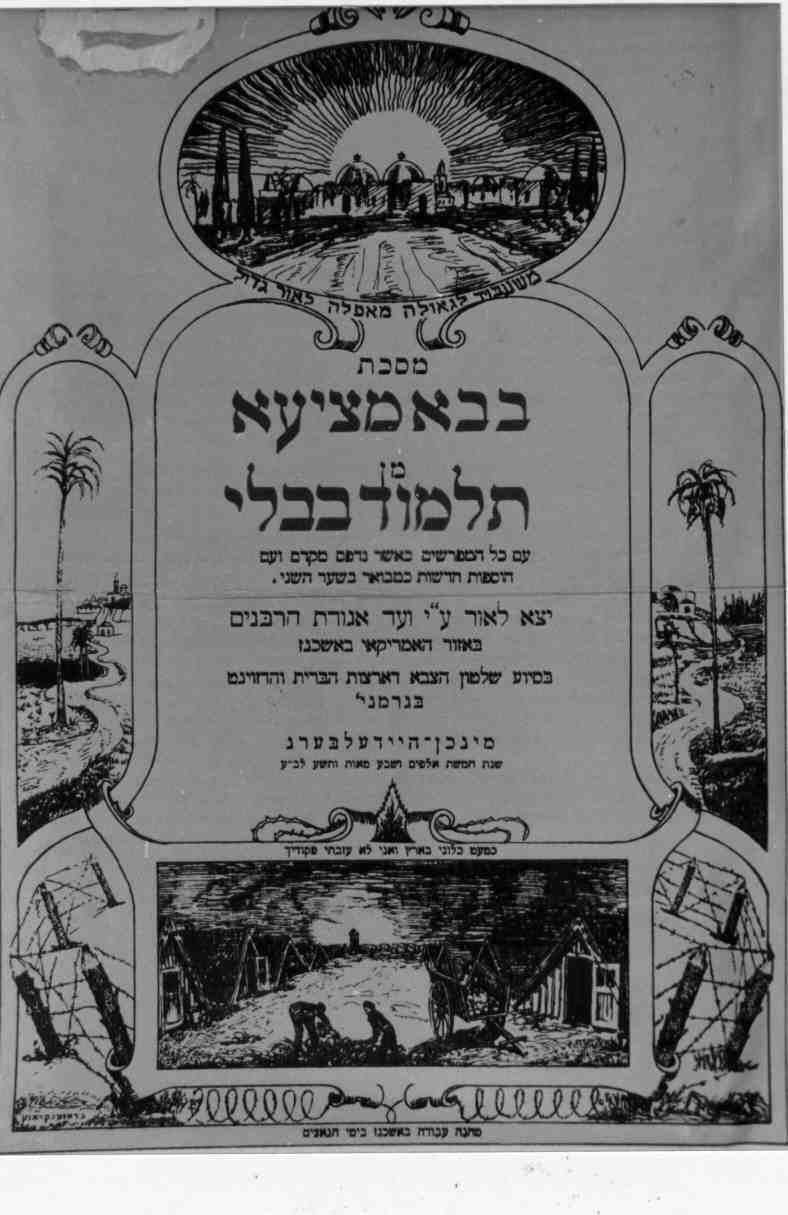
The opening page of Talmudic Tractate Bava Metzia printed by the Vaad HaHatzala (Rescue Committee) in conjunction with the Joint in Munich, for Jews in the DP camps
Rebbetzin Rivka Ezrachi – The Mir Yeshiva in Shanghai (Mir, Lithuania)

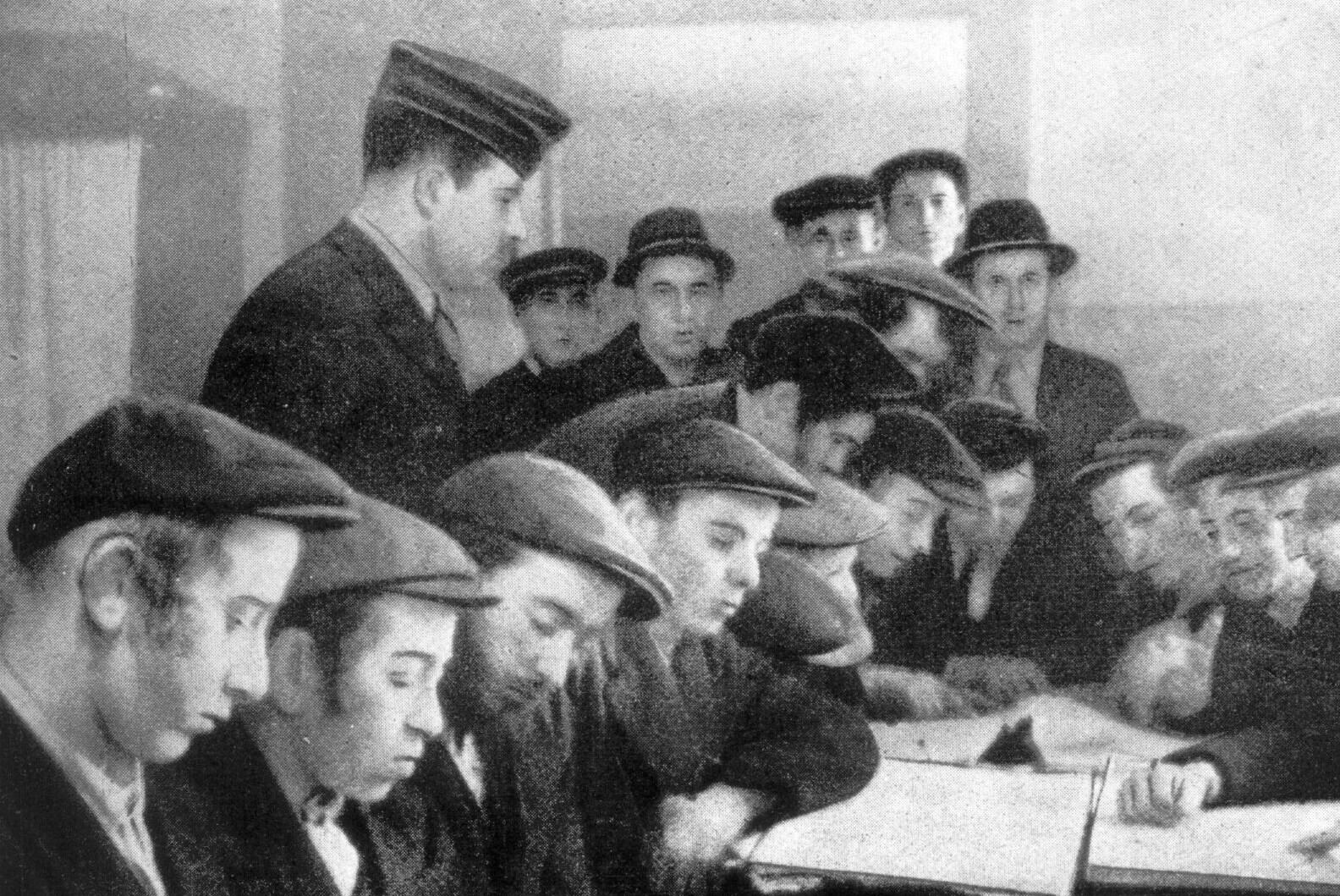
Surviving young men, students of the Novardok Yeshiva, learning Torah in the Zeilsheim DP camp
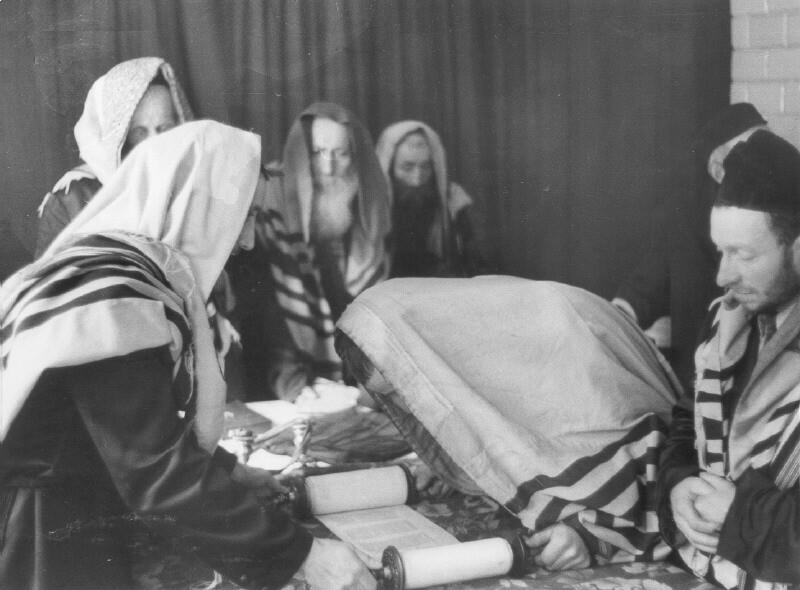
Reading the Torah in a synagogue in the Warsaw Ghetto
“Akdamut Milin” (introductory poem recited before reading the 10 Commandments on Shavuot) on the Train to Auschwitz
“Akdamut Milin” (introductory poem recited before reading the 10 Commandments on Shavuot) on the Train to Auschwitz
On the way to Auschwitz, Poland, Shavuot 5704 (1944)
The train moved, crossing the Carpathian Mountains on its way to Poland. A voice suddenly rose from among the Jews: "Do you know what day today is?", of course. A hushed, chilling conversation was held between the people sitting in the cattle car, "today is the eve of Shavuot, the night of the receiving of the Torah is approaching, and it will soon be sunset." The dear Jews sitting there, were not just simple people, G-d forbid. In the middle of the carriage sat Rabbi Avraham Meir Baron, a righteous Jew, and his lips never stopped muttering words of Torah and prayer, as well as chapters of the Psalms. Rabbi Avraham Meir - he was the one who used to get up every morning and was early to come to the synagogue, in both summer and winter, before everyone else. Now he encouraged us all "Wake up sleeping ones, Shavuot is today, G-d's salvation is in the blink of an eye, another whole day is ahead of us. Tomorrow is also a holiday, the second day of the holiday in the Disapora, anything can still happen, we will still wake up to a beautiful morning." Meanwhile the train rushed forward to the destination. Traveling non-stop for two days in a row; some muttering chapters from the holiday prayer, some lying sprawled on the floor of the car pondering, with no place to straighten limbs or place a foot. A voice suddenly rose in the cattle car and broke the silence. Our Rabbi Avraham Meir, held a Shavuot machzor (prayer book) and recited aloud the well-known poem "Akdamut milin v'sheriyot shuta," composed by someone in ancient times, especially for the holiday of the receiving of the Torah. He recites it in the traditional melody - with a soft hum accompanying it.
One from the City, Yehoshua Danziger
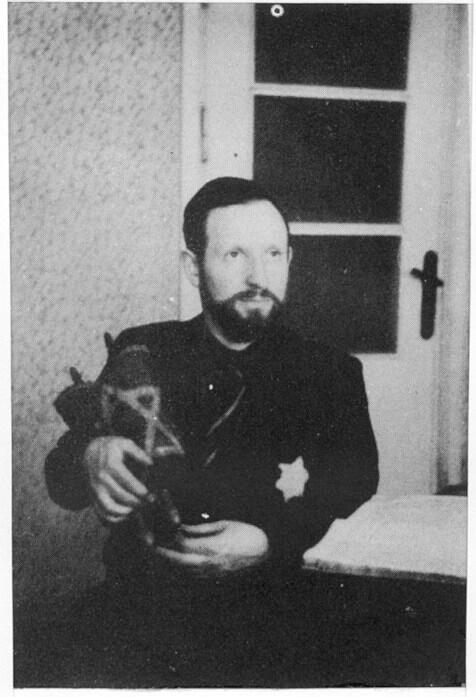
Rabbi Ephraim Oshry, wearing the yellow star, carrying a saved Torah scroll in Kovno
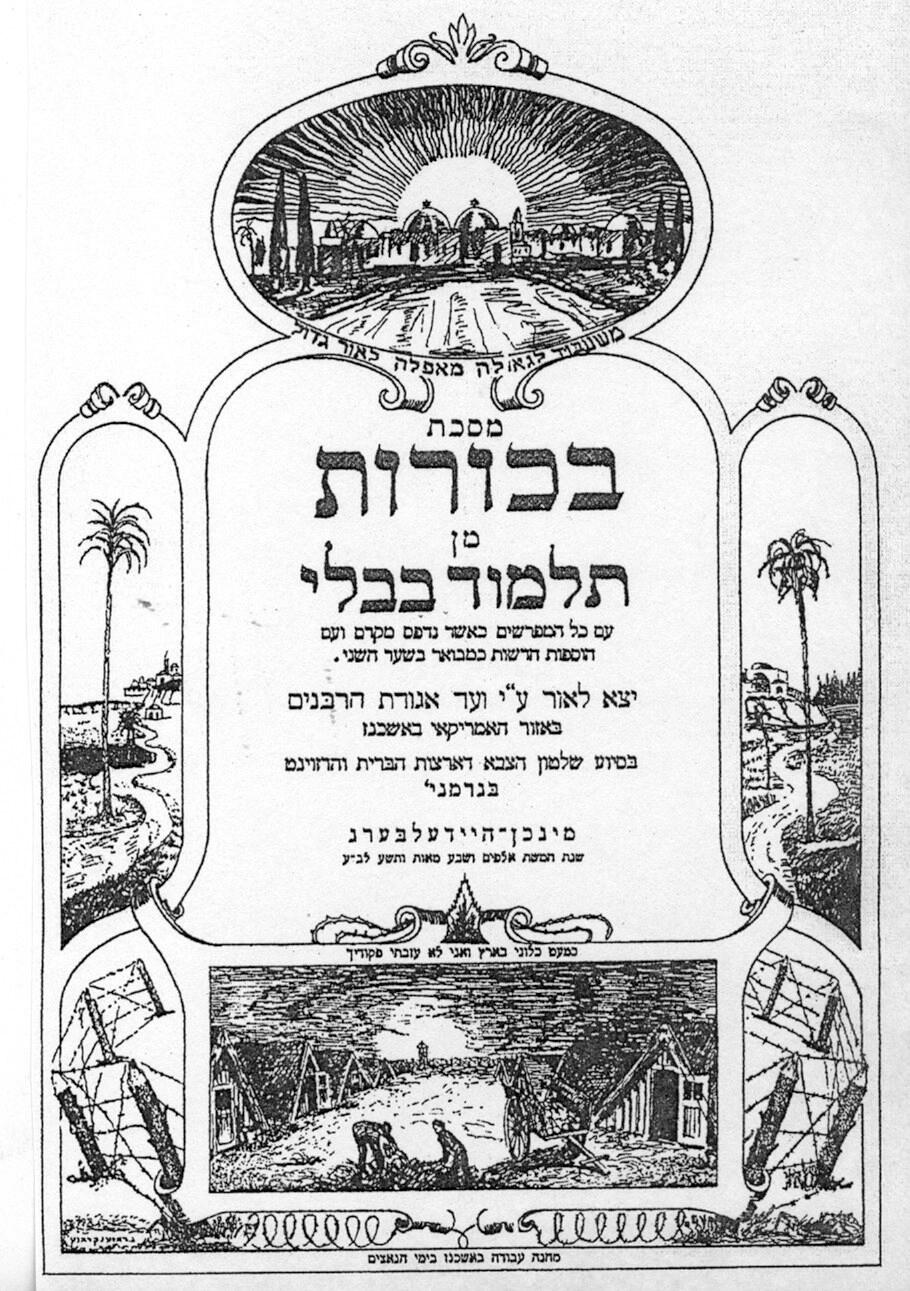
The opening page of the Talmudic Tractate Brachot (Blessings) published postwar in Munich
Shavuot in the Ghettos and Camps
Shavuot in the Ghettos and Camps
No, it is not a coincidence that the German murderers tried to be especially cruel on the Jewish holidays, to arrange massacres of the Jews on those days, and to harass them and ruin their holidays.
It is also no coincidence that during the holidays, Jews tried with supreme dedication to fulfill the commandments of the Creator, to be united with the holiday, and especially on the holiday of Shavuot, the holiday of the giving of our Torah, as the Sfat Emet said: "On the night of Yom Tov, it descends to purify the People of Israel, as it says in the holy Zohar (a kabbalistic book) that G-d purified the People of Israel so that they would be pure vessels to receive the Torah…" (Sfat Emet, Shavuot, p. 29).
I remember an interesting conversation I listened to - on the same topic - on the night of Shavuot in 5702 (1942): like many Jews, I tried to save myself in that year of killing and extermination of Polish Jewry, in 5702. I fled from place to place, until at the end of the winter of that year I stumbled upon the "Juden Colony" (Jewish Colony) in the region of Turek, which was established by the German murderers for the purpose of tricking and deliberately deceiving Polish Jews and Jews abroad.
When I arrived at the village of Sztacholc in the colony, I found there a dear old friend, a man from Piotrkow, the young genius Rabbi Pincha Weiss, may G-d avenge his blood (one of my first students of the genius, Rabbi Meir Shapira z"l), who served as a rabbi in the city of Turek .
To this day, I cannot explain to myself from where Rabbi Pincha, may G-d avenge his blood, got so much energy, strength and courage, both physical and mental. Like his genius and righteous father-in-law, the Rabbi Yeishish of Dobra, he also fasted from Shabbat to Shabbat. He ran around all day long, dealing with matters of saving lives and redeeming prisoners (bribing and interceding with the Germans on behalf of Jews caught in this "sin" or another "crime"). He particularly devoted a lot of time to organizing the delivery of food packages to camps in Poznan, Lodz, and other places. His concern was especially great for the above places in preparation for Passover that year. He even wrote to them and allowed them to eat kitniyot (legumes, which Ashkenazi Jews have a custom not to eat on Passover) on Passover.
Together with his father-in-law, Rabbi Yeishish - and the rest of the rabbis in the place - they were diligent and sought advice on saving the community: they announced a public fast, recited Psalms in the evening and morning tearfully and with great awakening, and at the same time, they did not stop studying; he sat day and night and studied the Torah, including the Kabbalah.
And here on that unforgettable night, the night of Shavuot in the year 5702 (1942), I sat in his midst. Rabbi Menachem Hershfinkel (a passionate Ger chassid) was as usual very optimistic, "Certainly, the murderers - a bitter end awaits them, while we Jews - our salvation is coming close " – so he said.
In contrast, Rabbi Yosef Bunim Jachimowitz (a great Torah scholar and educated Jew, director of the Commercial Bank in Turk), was more reserved and skeptical. In general, Rabbi Yosef Bunim - who was a rationalist by nature - had many questions and doubts: What is the logic of the Germans harassing religion and those who carry out its commandments? Why do the Germans persecute and issue decrees also against Jews who left Judaism, even up to the third generation? And more and more questions.
Rabbi Pincha was sitting bent over with his head drooping between his shoulders, as if he were asleep and not listening to our conversation at all. Suddenly he stood up and said:
"Many of us do not know what these wicked people, the Germans, may their names be wiped out, know, or what they feel - that Judaism and the Torah are their eternal enemy, of Amalek. In the ancient generations" - Rabbi Pincha continued - "the gentiles attacked the Jewish religion, seeing it as a rival, however the Amalek of our generation feels that not only the Torah but also the Jew in his very body, has holiness in him and is a danger to the influence of Amalek. Therefore we should not be surprised that the wicked persecute and destroy Jews whose ancestors had already alienated themselves from Judaism."
And here Rabbi Pincha told us amazing cases of complete repentance in those days, and he ended by saying on behalf of the tzaddik Rabbi Baruch of Mezibozh z"l, about the verse: "And in a little while the wicked one is not here, and land you shall look at his place and he he not there" (Psalms 37:10) , the he, the righteous one, interpreted: every Jew has an "internal point", a Divine part of them - which is never extinguished, and this is what King David prayed for: and you observed his "place", the "internal point", and then - "and he is not", the wickedness inside of the Jew will disappear.
This is how Rabbi Pincha comforted us and convinced us to inspire Jews to repent. The next day, immediately after the prayer that we prayed early in the morning, I did not have time to move away from the prayer house and I was caught, along with many other Jews, in a hunt organized by the Germans in the colony and I was taken to the gathering place. Rabbi Pincha did not rest; he specially sent the intercessor Herschel Dzamonuda of Shurek to rescue me from arrest, but he did not succeed. On the second day of Shavuot, hundreds of of young Jews were sent to the dreaded labor camp in Schwanzingen, near Posen.
In the camp I also managed to receive a letter of encouragement from Rabbi Pincha, in which he encouraged me and comforted me.
Yehoshua Eibeshitz, "Gates," 18/05/1972
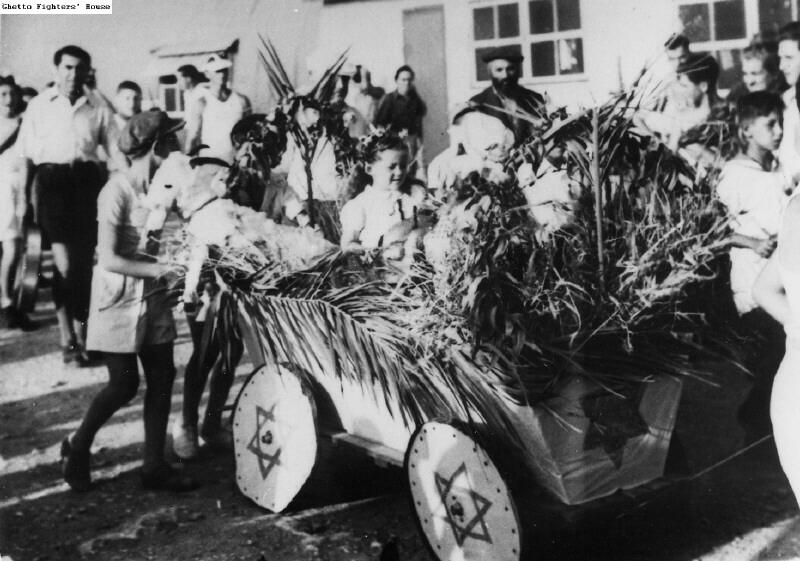
Ceremony of the bringing of the first fruits on Shavuot 5708 (June 1948) in detention camp no. 55 for illegal immigrants in Cyprus
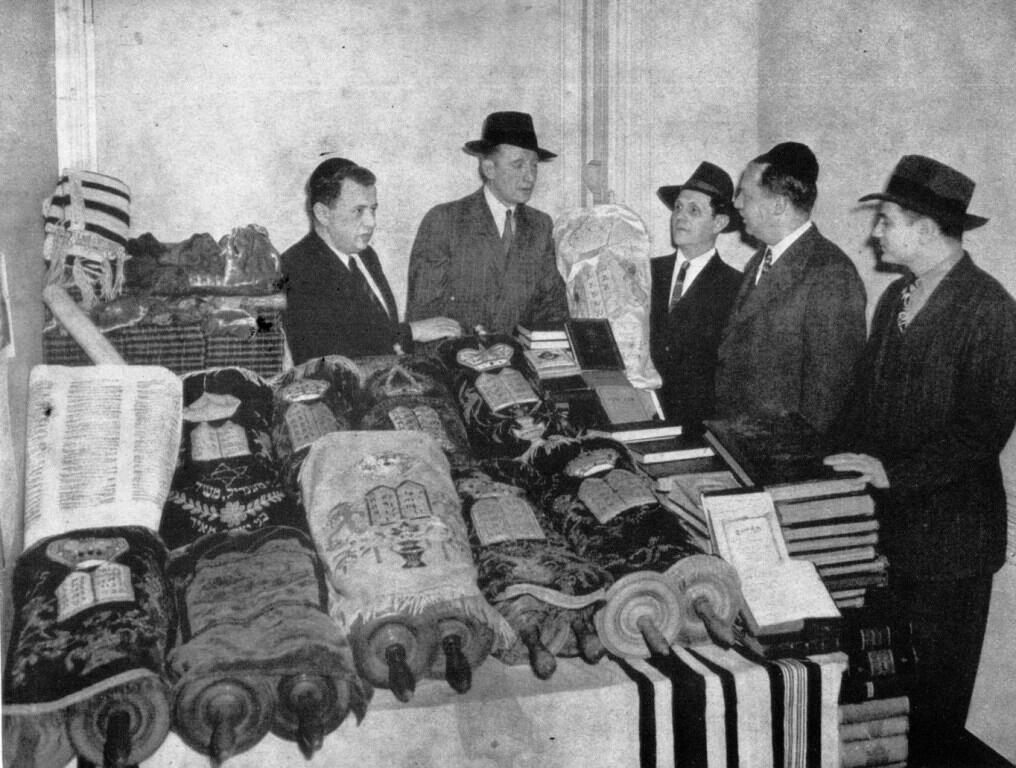
Members of Vaad HaHatzala (Rescue Organization) with Torah and other holy books that survived the war
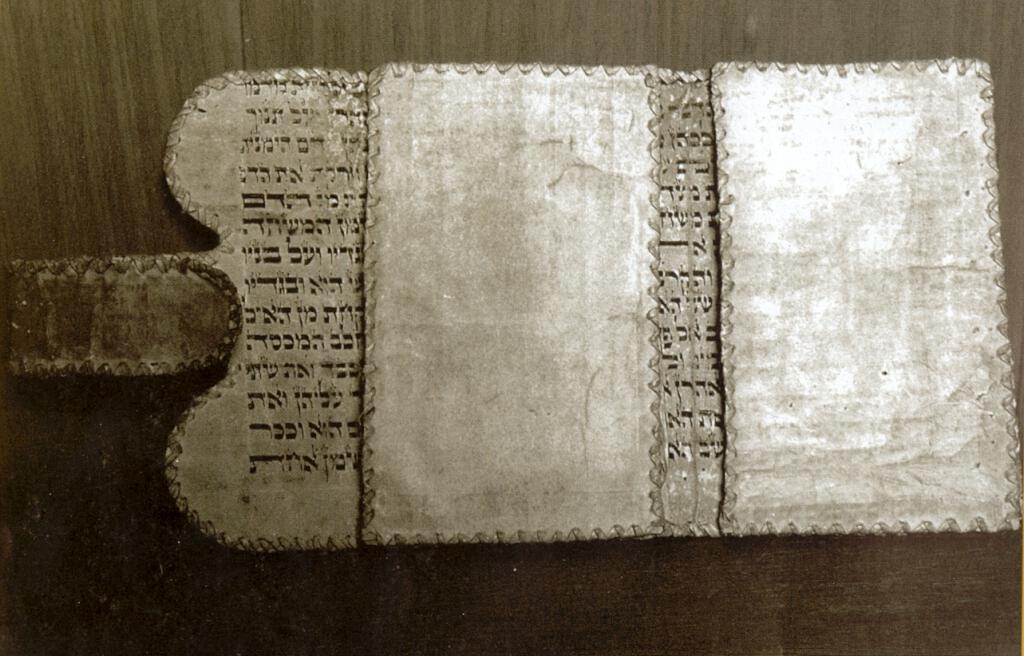
A wallet made from Torah parchment
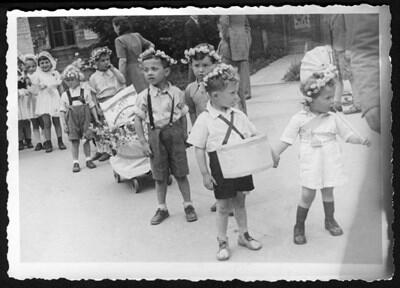
Children celebrating Shavuot in a DP camp in Germany
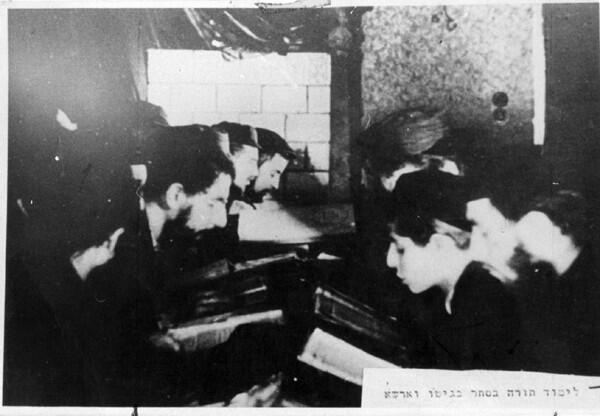
Young men and students learning Torah in a bunker in the Warsaw Ghetto
Ephraim Elkichen – The Return to Judaism (Brussels, Belgium)

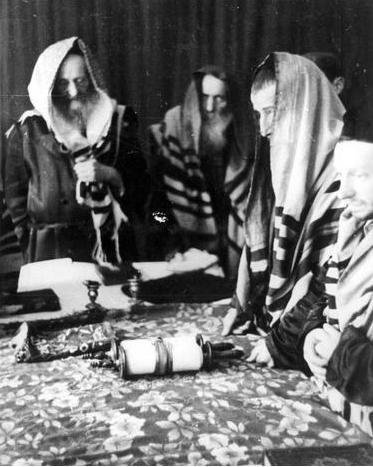
Jews reading the Torah in the Warsaw Ghetto. A small Torah lays on the improvised bima (prayer platform)
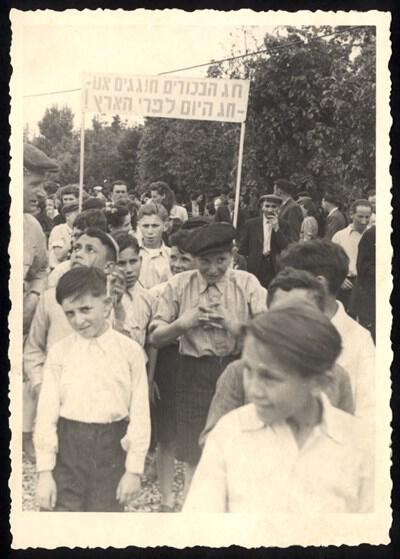
Children celebrating Shavuot postwar in a DP camp in Germany
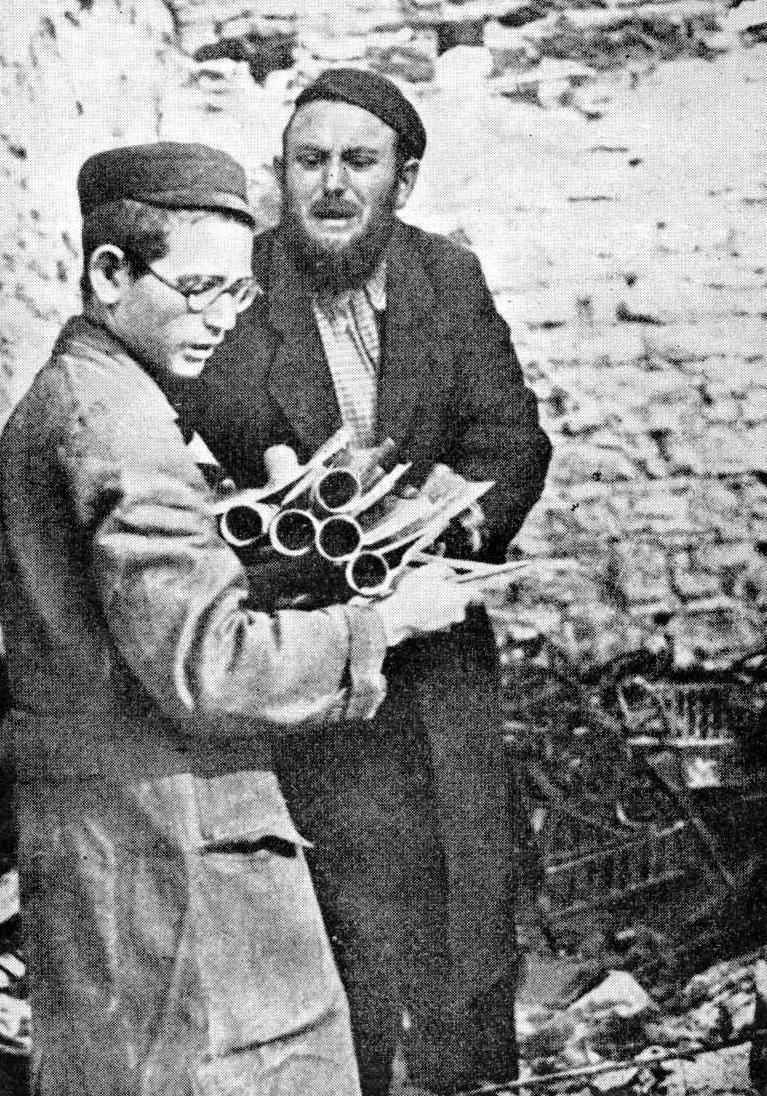
Jews collecting parchment of Torahs that were desecrated by the Nazis
Yitzchak Bennet – The Tasnad Yeshiva (Szaszregen, Transylvania)

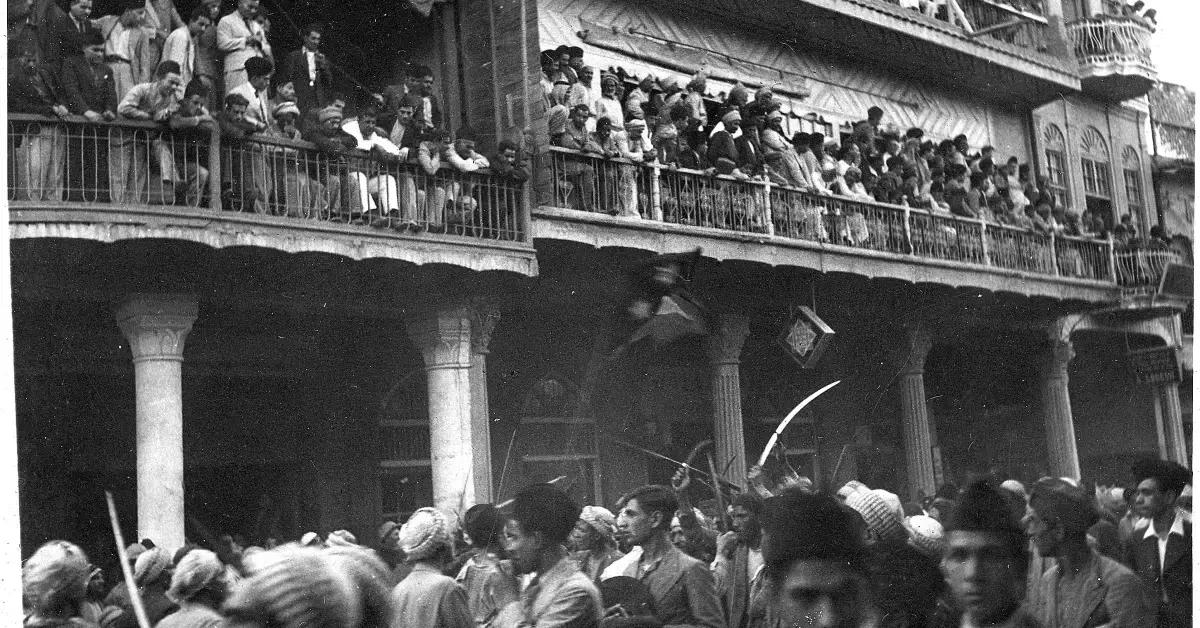
The Farhud – The Arab campaign of lotting, robbery, and murder of the Jews of Baghdad on Shavuot 5701 (1941)
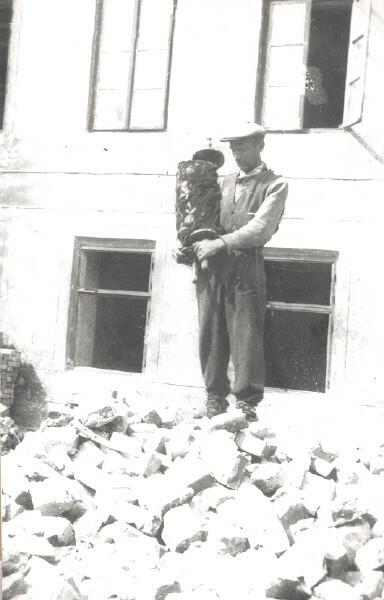
A Jew in the Lodz Ghetto carrying a Torah on top of the remnants of a synagogue
Rebbetzin Esther Klein – The Counting of the Omer on the Way to Work (Kerestir, Hungary)

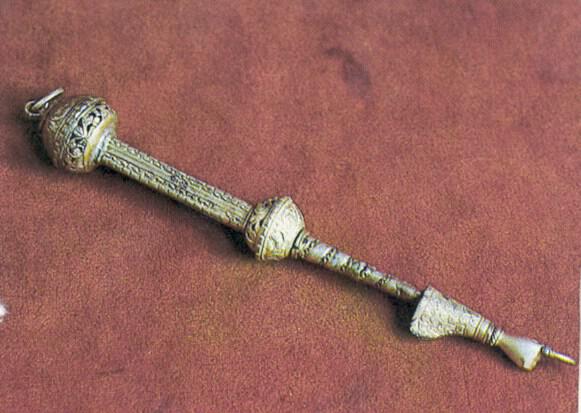
A Torah reading pointer
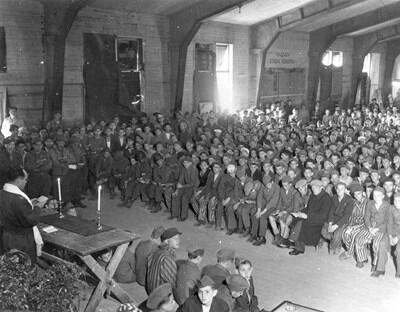
Prayers on Shavuot after liberation in the Buchenwald camp in 1945, led by Rabbi Herschel Schachter
Yehoshua Eibeshitz – Escape with the Torah (Wielun, Poland)

A Yeshiva in Auschwitz
A Yeshiva in Auschwitz
When the Nazis rushed the remainders of Hungarian Jewry to the deportation trains, it was forbidden to take a single piece of paper with. But this prohibition did not stand in the way of some Torah believers, who wraped their bodies in in individual pages of holy books.
On their last journey, those brave Torah members decided to open a "yeshiva" in Auschwitz. The bookcase contained single pages, scraps of Gemara and other Torah books, a scroll of of broken tablets. The "Treasure of Books" brought together a veritable treasure, precious stones, milestones, which shone like glittering jewels, their souls busy until the last hours.
* * *
22 yeshiva students decided among themselves that at every free moment, at every opportunity that arose, they would study Torah together and even renew Torah interpretations, under the noses of the guards. They said it and they did it. Immediately after disembarking the death trains, they hid the Holy rolls from all of the guard, and with the spirit of the holy matieral, they passed the difficult hours, the running across the camp and the collecting of the burnt bodies of their brothers.
Hours of continuous study, surrounded by friends, the students of the "Auschwitz Yeshiva" gathered in abundance. Hours of neither day nor night, hours filled with hunger and misery, sleepless nights, when on the doorstep stands the angel of death in his own right, and a cruel smile pours between his many eyes.
And they mocked death. The particularly stubborn Jews stood up for themselves, did not let anyone trample them, remained true "Children of the Torah" until the bitter times that faced them. Yes, it is difficult to understand how. But they renewed wonderful Torah thoughts, brilliant interpretations from their elite minds, masterpieces.
The jaws of death lured them in, gave them no rest. Out of 22 students, their number dropped to 18 and then 15, but they could do it. After them, there remained the last spark, stepping stones for millions who disappeared in the clouds of smoke, the corner stone they laid for the yeshiva, remained and was not broken, the People of Israel's eternity will not be broken.
One of them, Rabbi Avraham Meir Yizrael, the Rabbi of Huedin (now in Romania), decided that the Torah interpretations that emerged between the valleys and the slopes of death must not disappear. With stirring mental strength, he collected the best interpretations from the "Auschwitz Yeshiva" and eternalized them in writing.
On what paper did he write the Torah interpretations? With the paper he collected at risk to his life, with the pencil he bought for a few portions of food… the price of the interpretations that were written rose to a few fine days of hunger in Torah productivity. Cement sacks that were once used for defense ditches, overnight became holy books, full of Torah interpretations from the shadow of the madness of death. "Yeshiva in Auschwitz," what a stirring combination of words. Strange and illogical, impossible. Sitting on the brink of the abyss, carved from the depths of fiery hell, on the brink of the slingshot.
A yeshiva that promised that it would not give up its generations, studying Torah in fear and trembling, with longing that caused even death and its messengers fall silent. A burnt body, eaten away hands, crushed and broken bones, but the fertile mind adds to the flutter with fruitful Torah interpretations. "For it will not be forgotten from the mouth of their offspring" (Deuteronomy 31:21).
Rabbi Aryeh Geffen, "Yated Ne'eman," Shabbat supplement
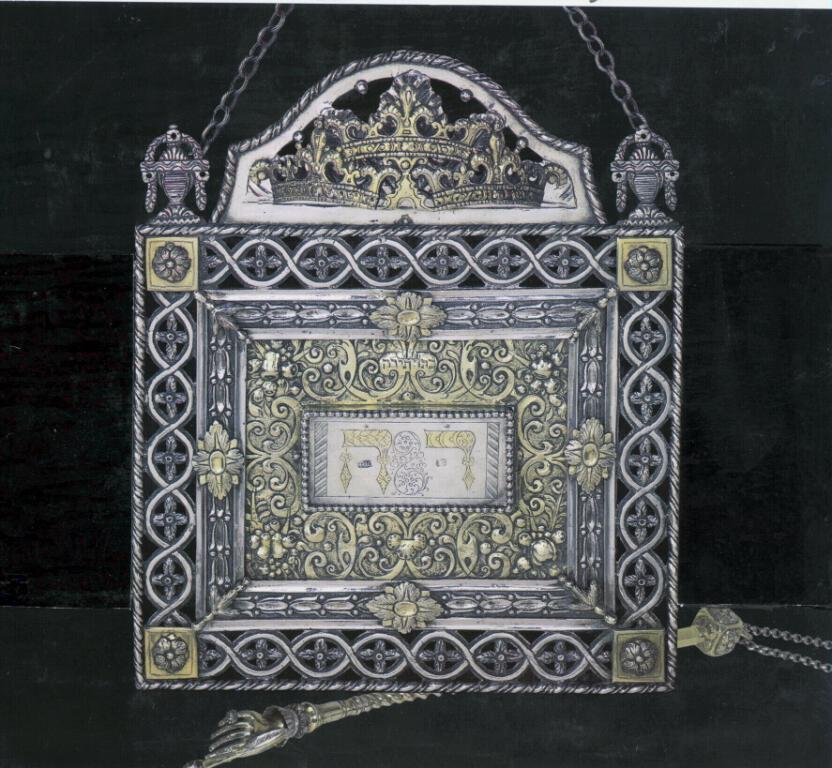
Breastplate for a Torah from Emden, Germany
Bentzion Weiss – Keeping the Jewish Holidays (Neresnica, Czechoslovakia)

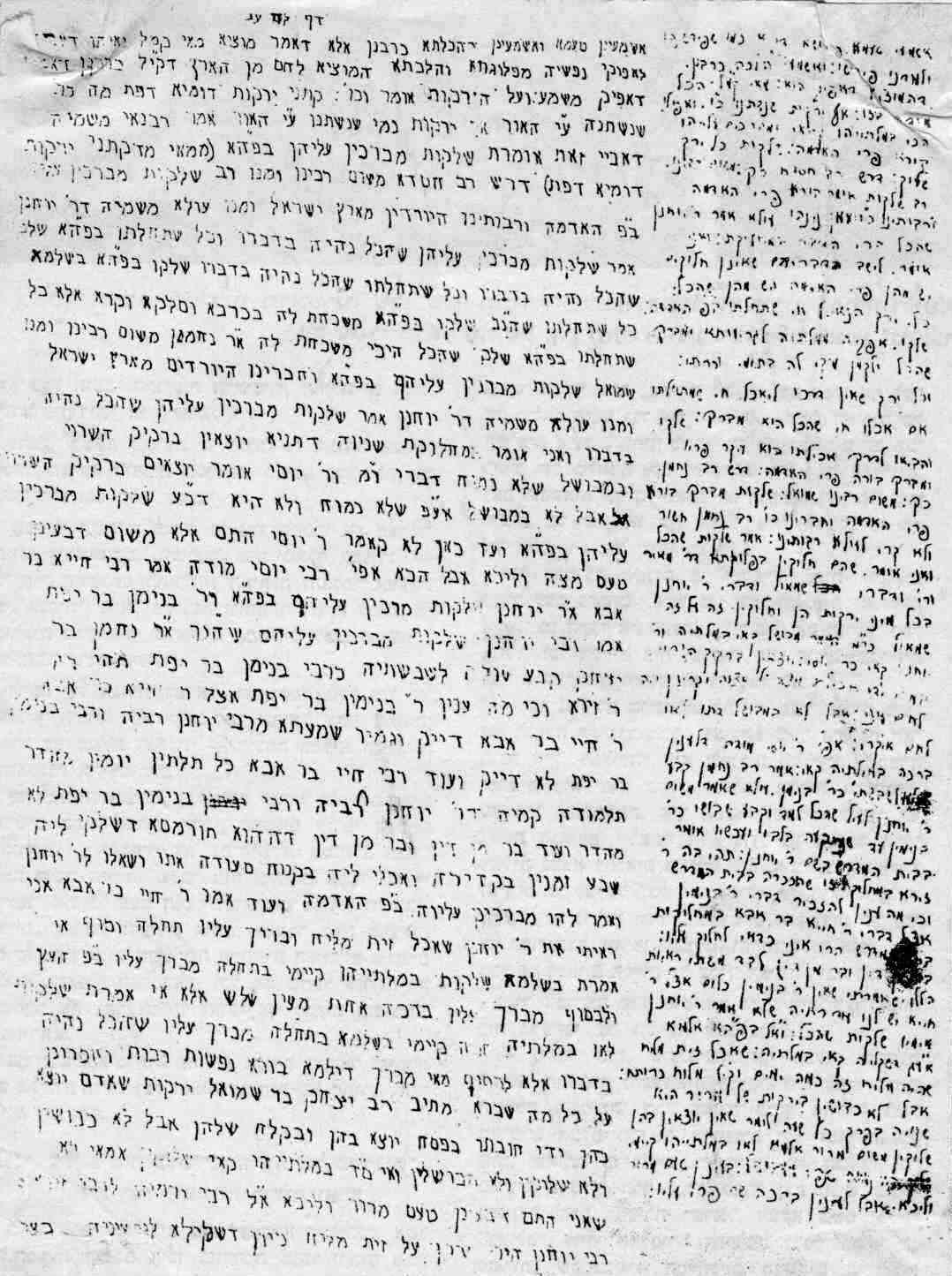
A Talmudic Tractate Brachot (Blessings) handwritten in a camp
Abba Halperin – In the DP Camp with the Klausenberger Rebbe

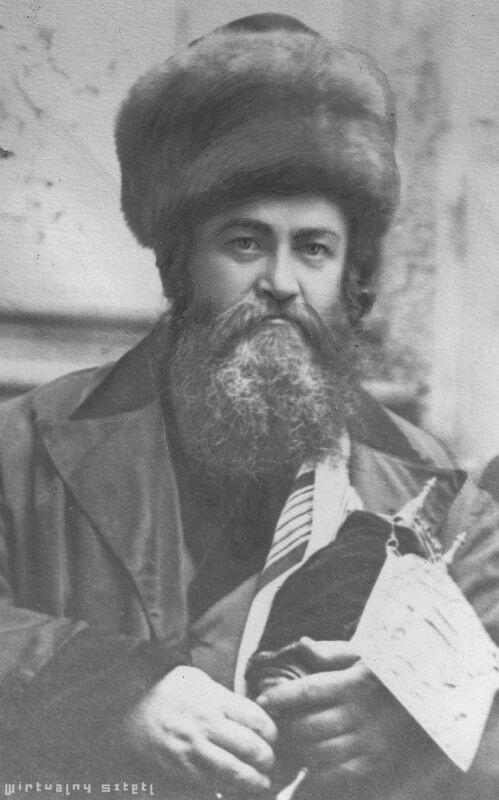
Rabbi Meir Shapira of Lublin, the founder of the Chachmei Lublin yeshiva, holding a small Torah
Tzvi Yitzchak Govitz – The Nitra Yeshiva (Berehove, Czechoslovakia)

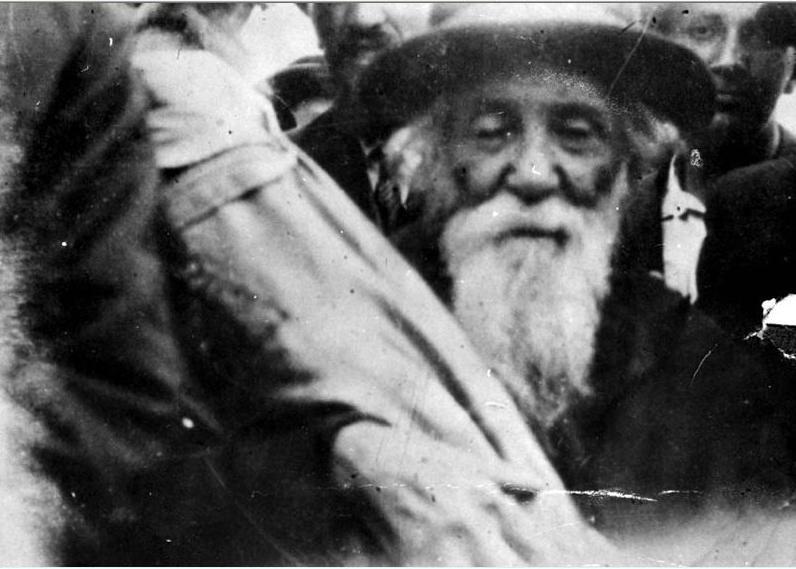
Rabbi Chaim Greenberg, the rabbi of Iasi, Romania, carrying a Torah on his way to the deportation train
Natan Tzvi Baron – The Separation from the Telz Yeshiva (Taurage, Lithuania)

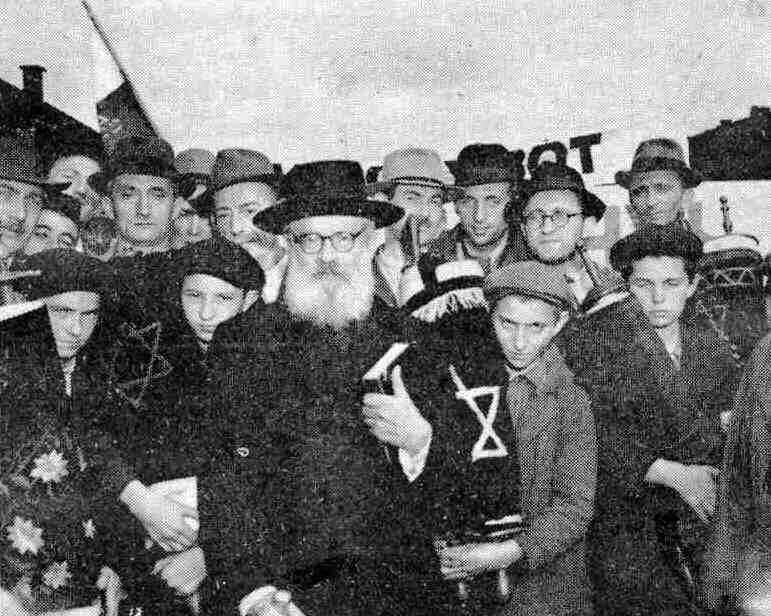
Rabbi Herzog visiting the Dialitza camp in Prague, postwar. He is greeted by survivors carrying Torahs
The Holiday of the Receiving of the Torah in 5704 (1944)
The Holiday of the Receiving of the Torah in 5704 (1944)
Shavuot in the camp: the sun rose beautifully in the morning; we were expecting a bright day. The gate of the camp opened wide, we immediately saw that the Germans from the seed of Amalek were coming to eliminate us, as hundreds of soldiers entered the camp, in the company of dozens of Ukrainians and Poles, in order to hold a sports day in the camp.
The Amalekites wanted amusement and we would be the actors, the entertainers… "Sports exercises" - this is what the Amalekites call their humorous actions, it could be in many different forms, such as two prisoners being given sticks and being commanded to hit each other until one can no longer stand up. In his place came a third prisoner, and then a fourth, so the game lasted for several hours.
We, the group of yeshiva students, luckily were assigned to the "running competition" game. I emphasize "fortunately", because how could we participate in a game that requires hitting a Jewish body?
The running competition: two rows of Amalekites stood, sticks in their hands, facing each other. All the Jews participating in the running competition ran forward with all their might as the Germans onstantly hit them all over their bodies.
The game began to the sound of the satanic roar and wild laughter of the Amalekites. Shlomo from Kletzk, Yitzchak Bialystocker, and I, the writer of these lines, ran among the ranks of the Amalekites.
Yitzchak Bialystocker, the strongest in the group, ran forward, but did not move away and did not leave us to our own devices. From time to time we call out: Meysheh! Itcha! Shloymaleh! These voices were signs of life that each person uttered to the other, as "the righteous falls seven times and rises."
The whips are whistling
The sticks are breaking
The Amalekites are tired
The Germans are exhausted
The strikers take turns
How are the friends?
The Novohardok group?
The love G-d
And they trust in Him
That He will act mercifully with them
And He will never remove His kindness from them
Now and forever
The number of participants in the running competition was becoming smaller and smaller… We had a few left… Yitzchak Bialystocker, affectionately known as Itcha, was running, his eyes were burning… His face looked like an archangel… His expression was out of this world… His ears, his nose were burning like fire…
"Meysheh! Shloymaleh! Itcha! Today is the day of the receiving of the Torah. Let's go and we will run to receive the Torah!"
"When the People of Israel sit and delve into the joy of the Torah, G-d says to His entourage, 'see my beloved, that they forget theri pain and deal with my joy.'"
From the personal notebooks of Rabbi Moshe Eliezer Schwarzbard
Zalman Cohen – Rabbi Hershel Schachter and the First Yizkor Prayer in Buchenwald (Nyiregyhaza, Hungary)

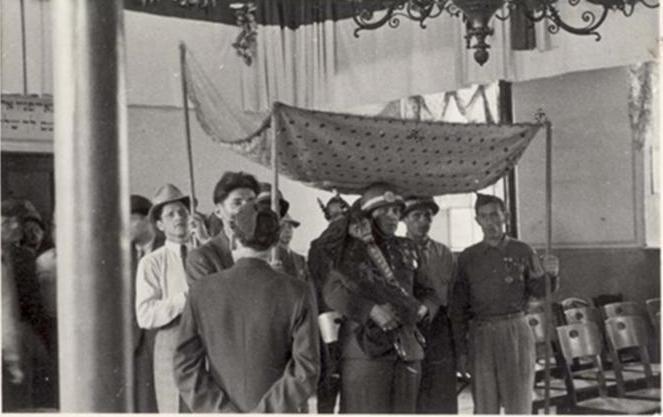
The inauguration of a Torah at the synagogue in the Krumbach DP camp
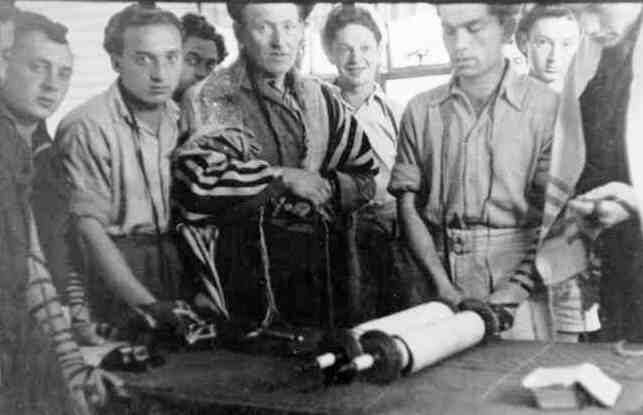
Illegal immigrants reading the Torah
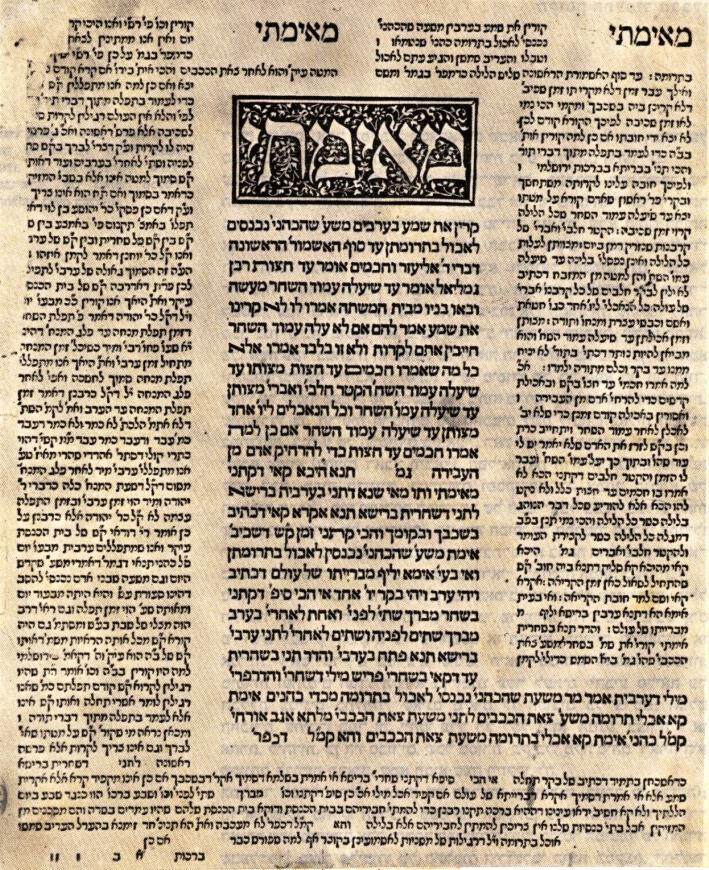
The first page of the Talmudic Tractate Brachot (Blessings), printed by Daniel Bomberg, Venice
Rebbetzin Rivka Ezrachi – Learning Torah in the Years of Wrath (Mir, Lithuania)

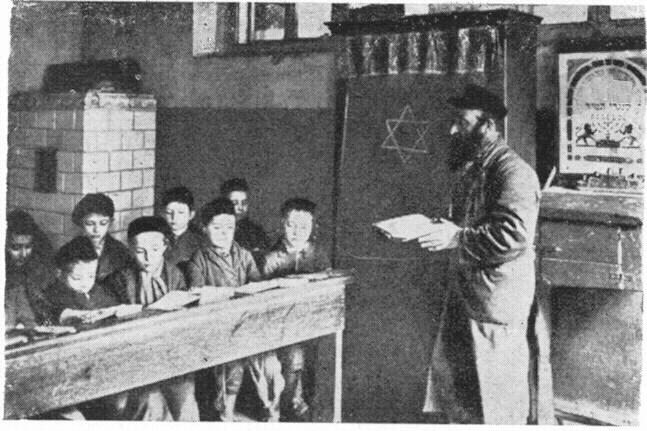
A teacher and his students learning Torah in a synagogue in Wyszkow, Poland
Abba Halperin – The Meeting with the Klausenberger Rebbe in the Camp (Lithuania)

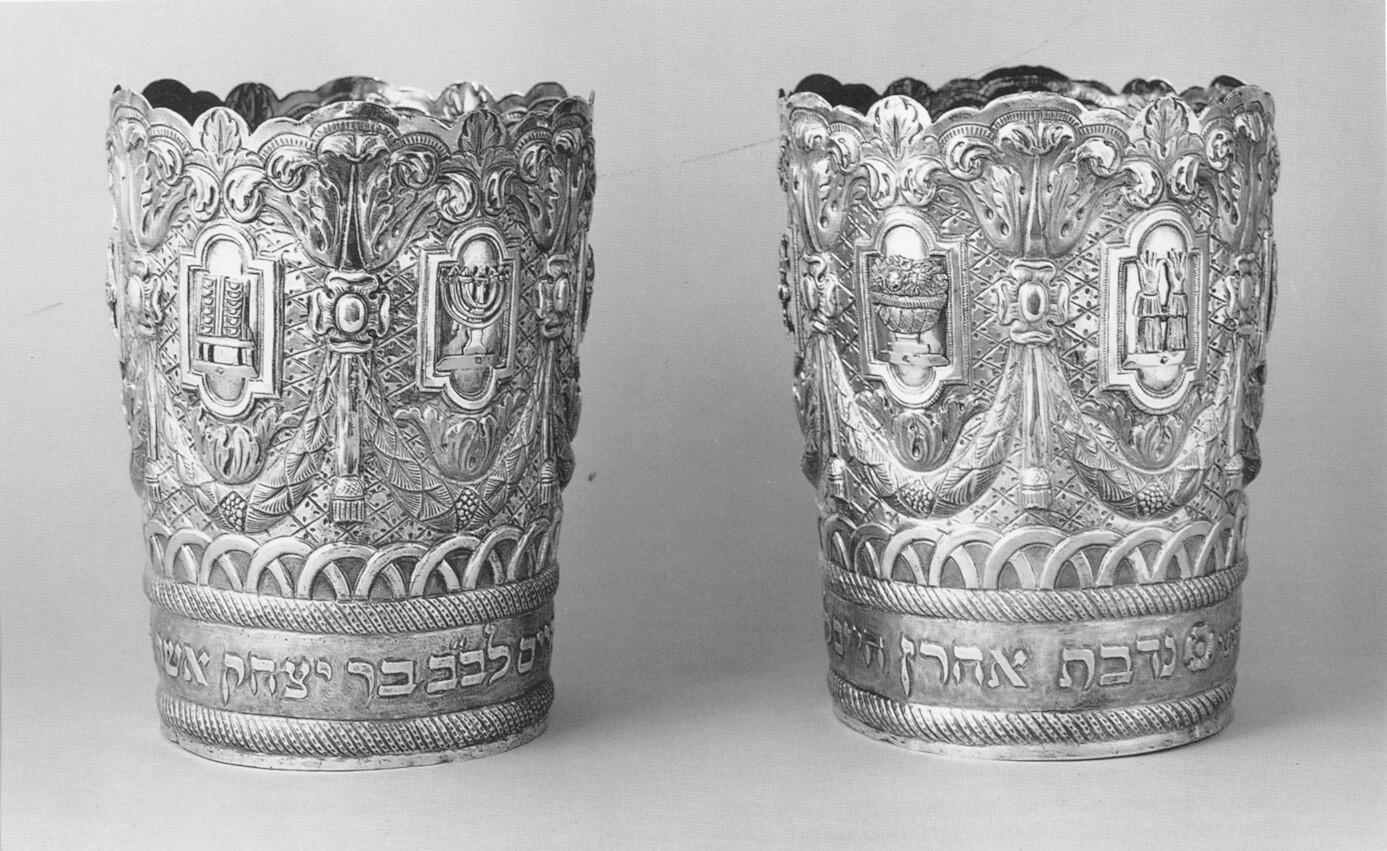
Torah crowns from Torino, Italy
From the diary of Moshe Flinker about Shavuot and the topic of the “Chosen People”
From the diary of Moshe Flinker about Shavuot and the topic of the “Chosen People”
Sivan 8, 5703 (June 11, 1943)
Yesterday was Shavuot. Shavuot, the harvest festival for our people, was yesterday, for the People of Israel who is now in a crisis like no other. The People of Israel, which is now in exile, which has been in exile 77 times, celebrated its harvest festival yesterday. At the same time in previous years, the synagogues were decorated with flowers. Branches and things like that. This time it was impossible to do this. At least in most European countries it was a complete impossibility. The reason is known to all: wasn't it in those days that Israel was exiled for the thousand and oneth time from the place of its previous exile. And this exile is not a simple exile like the exiles that we have already experienced countless times. No, this time we were attacked, as it were, by all sides in all the places where we lived, whether in Belgium or in France, whether in Holland, whether in Romania, or in any place where the Jews lived in exile, and it is not enough that they are in exile, but in the place where they were exiled, our brothers are persecuted there as well, as only Jews can be persecuted. Yes, we are persecuted to no end. There is no limit, but is it such a wonder?
All nations were happy. Even Germany was now in a war for their existence, unprecedented, more alive than us. Are we not the living dead or the dead living. And on the holiday of Shavuot I prayed with a little more intention the prayer "Chageinu," and when I came to the words that are felt by every Jew and known to a large part of the gentiles, my head was spinning for how many generations we have been saying these words. For several years of exile, there have already been three and a half years.
After several troubles, we already hate the heavy words "You chose us." Yes, You chose us. We laugh at ourselves from these words and even so, we have been around for two thousand years and I think You will not forget us in the days to come. I thought so much about whether it was really worth being a son of such a "chosen" people - but in my mind I felt that my thoughts had no value. If it's worth it and if it's not worth it - we already experienced it. There were times when I was proud that I was a member of this chosen nation, but those times have long since passed. I can't say that I hate this choice, but I'm still very far from loving it. When will we see the fruit of our labor, when, when, when?
(Young Moshe's Diary - The Diary of Moshe Flinker)
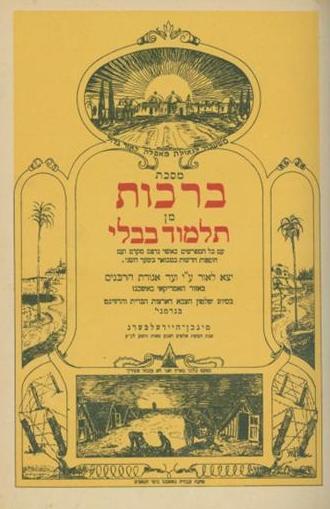
The opening page of the Talmudic Tracate Brachot (Blessings) published by the Vaah HaHatzala (Rescue Organization) in Munich postwar
Yitzchak Bennet – The Journey to Satmar (Szaszregen, Transylvania)

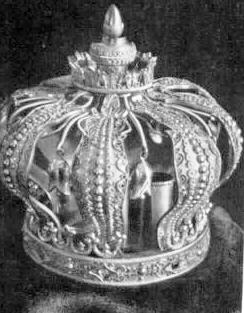
A Torah crown
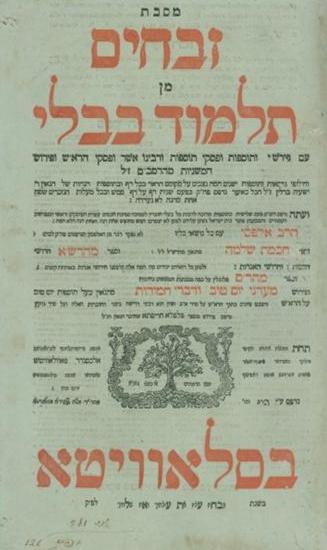
The opening page of the Talmudic Tractate Zevachim (Sacrifices) published in Slavuta, Ukraine
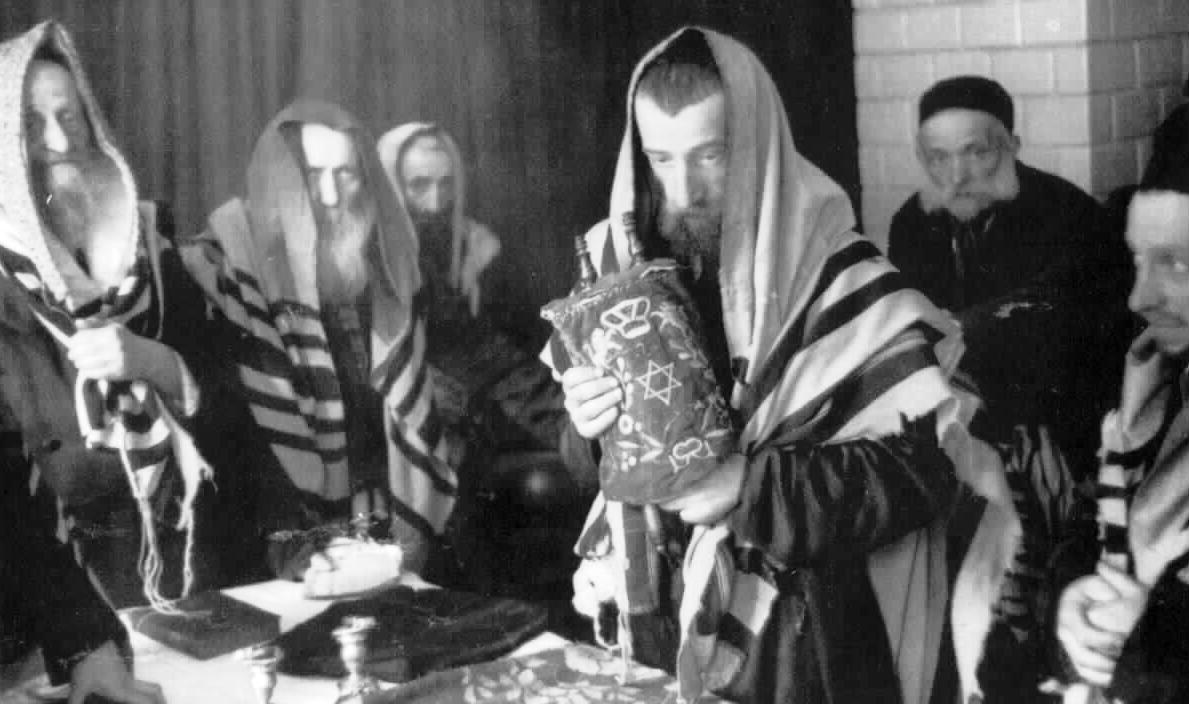
Jews wrapped in prayer shawls in prayer in a secret synagogue in the Warsaw Ghetto. Rabbi Yitzchak Meir Kanal is pictured
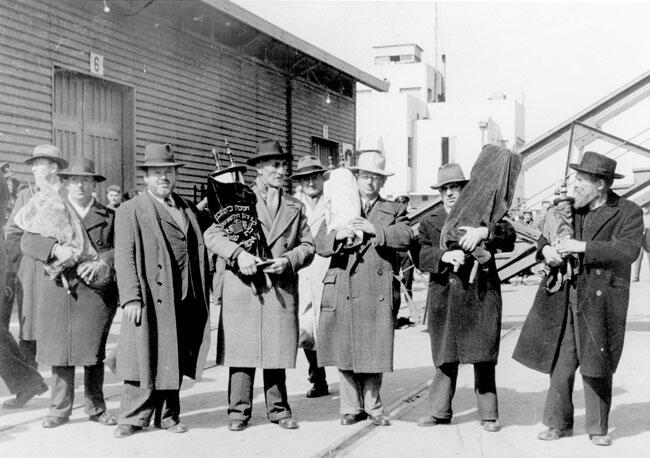
Jewish survivors in Shanghai, carrying Torahs, coming to Israel
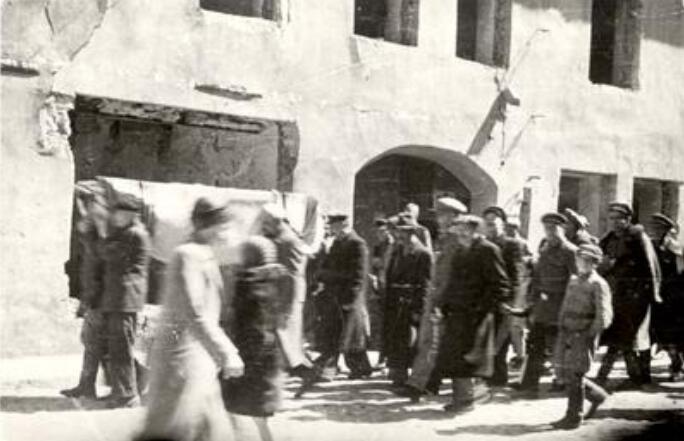
Jews in Vilna accompanying a coffin full of Torahs, that were desecrated during the war, to burial
Miriam Pollack – Shavuot in the Gurs Camp (Hamburg, Germany)

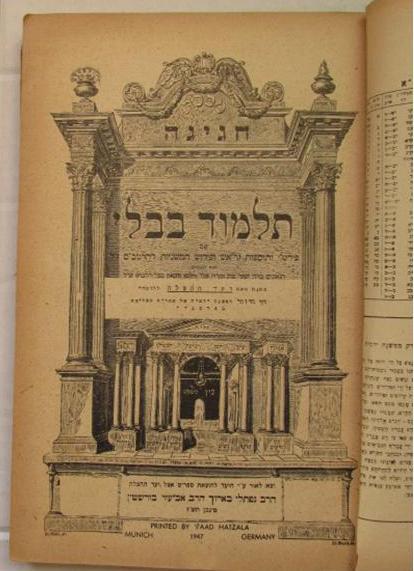
The opening page of the Talmudic Tractate Chagiga published by the Vaad HaHatzala (Rescue Organization) in Munich, Germany postwar
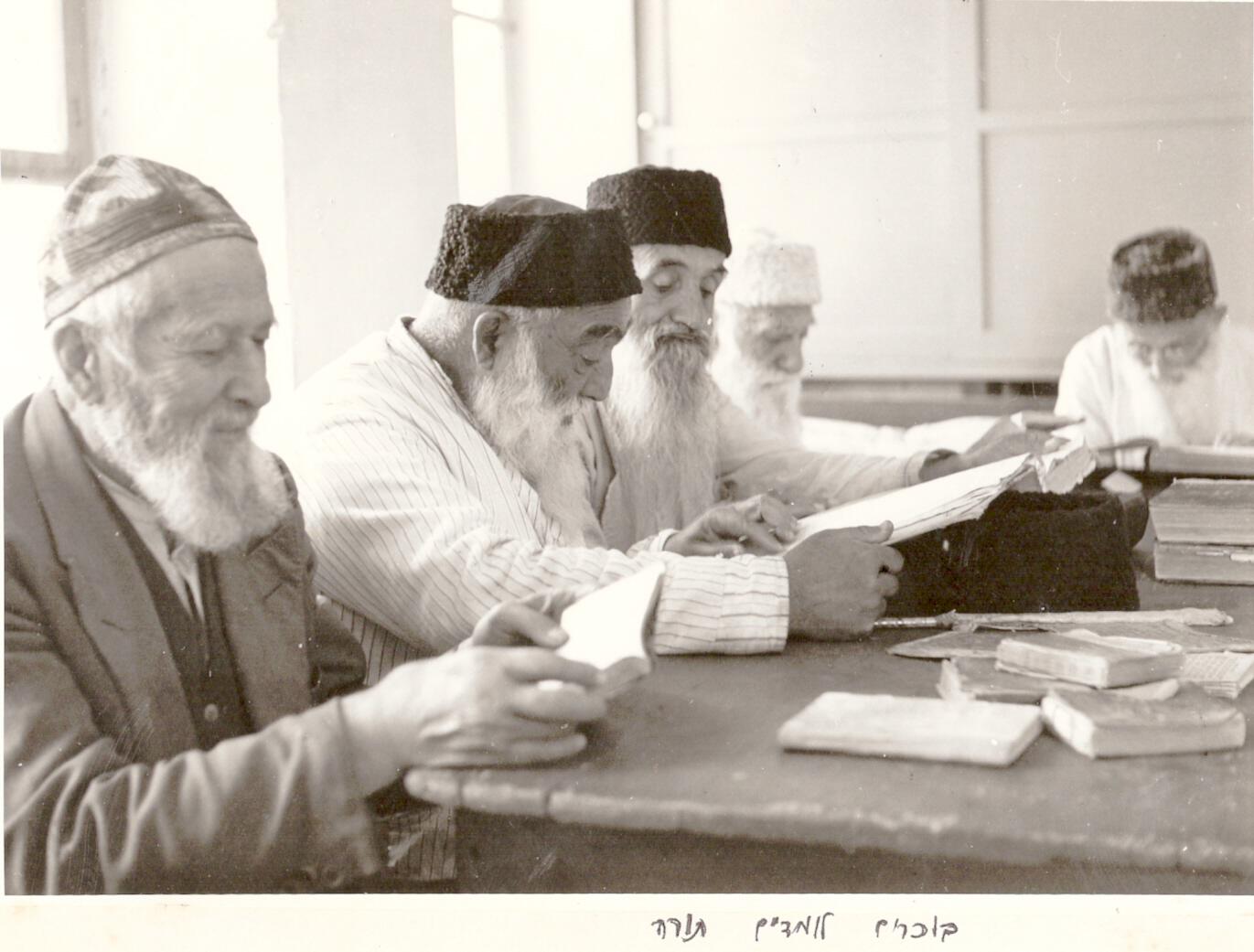
Bukharian Jews learning Torah
The Farhud
The Tune of Akdamot (introductory poem recited before reading the 10 Commandments on Shavuot) in Majdanek
The Tune of Akdamot (introductory poem recited before reading the 10 Commandments on Shavuot) in Majdanek
And so Leibel Pinkuszewicz told:
I ended up in Majdanek for Shavuot. The murderers of Majdanek kept track of the dates of the holidays, and in honor of Shavuot they took out all the Jewish prisoners for a sadistic game of "gymnastics". We were half-naked, and the commandant of the death camp abused us for many hours with various diabolical tricks. Suddenly he got tired of this crazy command, and we were left for a little while in the open field without any supervision. And then at this very moment, the captivating chasidic melody came to mind. I was looking for something to cover my head with, and I found a piece of torn newspaper. And so I began to sing the "Akdamut" in a strong voice with this melody…
I don't know how the words fit this tune. But I know this, because everyone was enthused by the heartfelt melody. Everyone who was able to, covered his head in any way he could. And when I was about to pray the Shemona Esrei prayer, many, many Jews joined in saying the "Kedusha" segment of the prayer...
This is how the chasidic melody saved the musical score of "The Time of Giving Our Torah", precisely in the inferno of Majdanek.
(Moshe Prager, Those Who Never Yielded, 5723/1963, Part B)
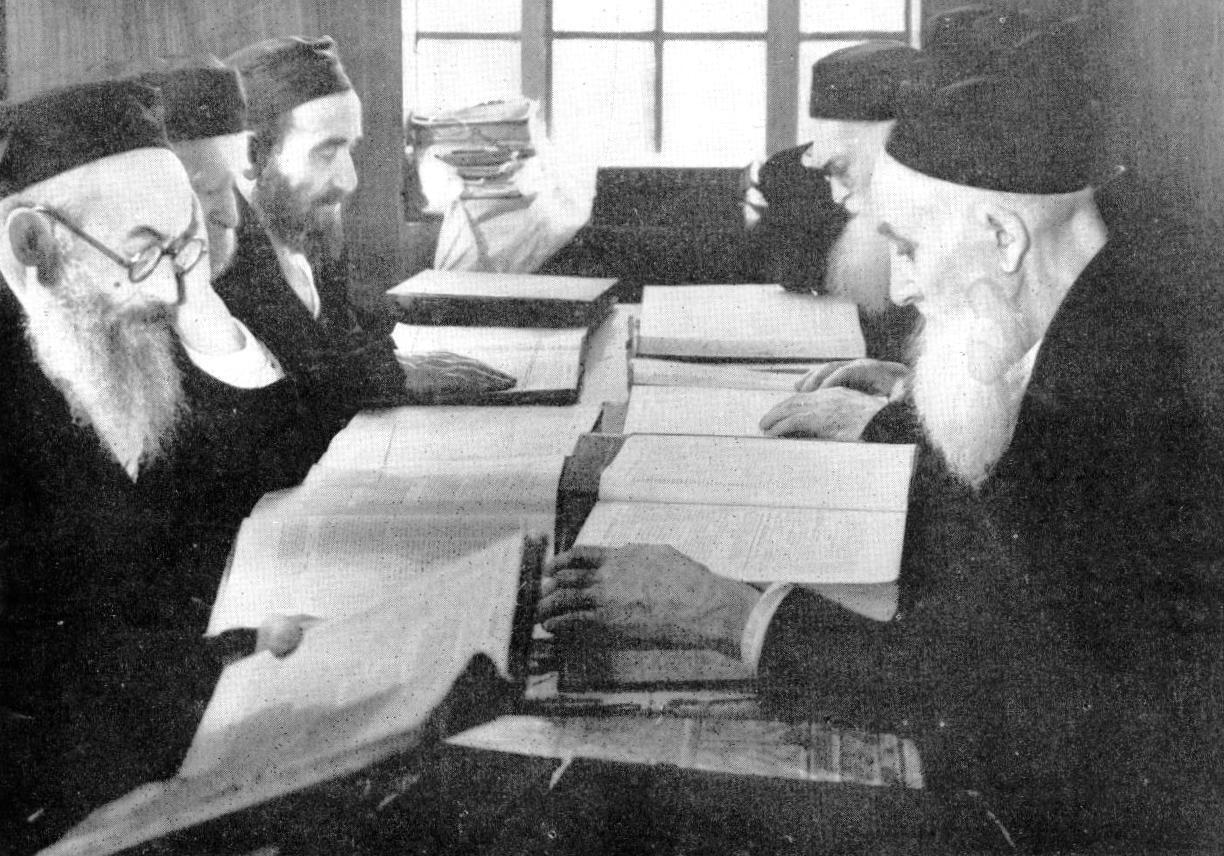
Jews learning Torah in a synagogue in Bialystok
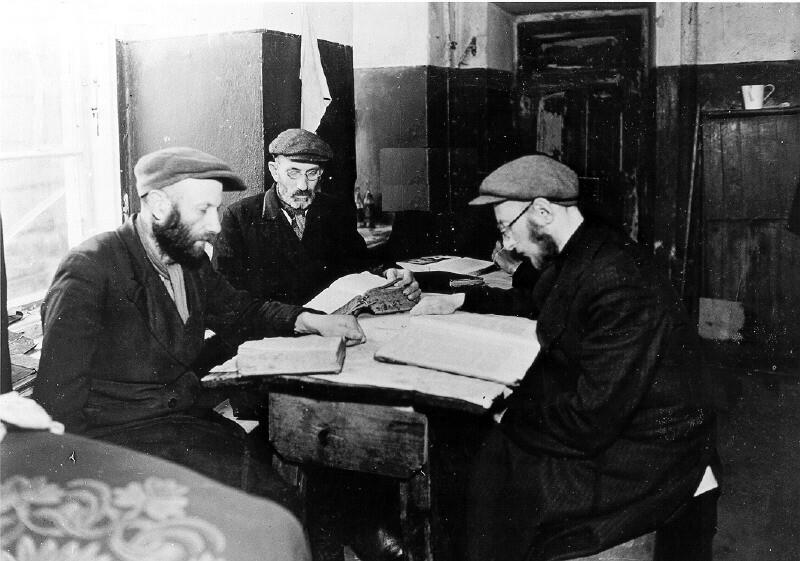
Jews learning Torah in a secret synagogue in the Warsaw Ghetto
Chana Eibeshitz – Self-Sacrifice for Learning Torah

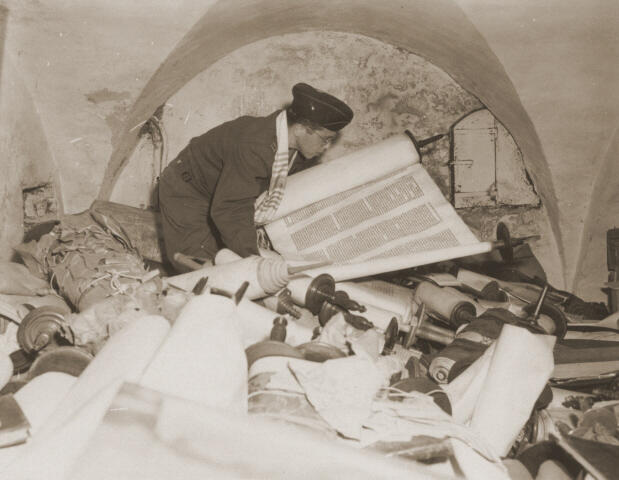
An American Army rabbi looks at a Torah from a pile of Torahs desecrated by the Nazis
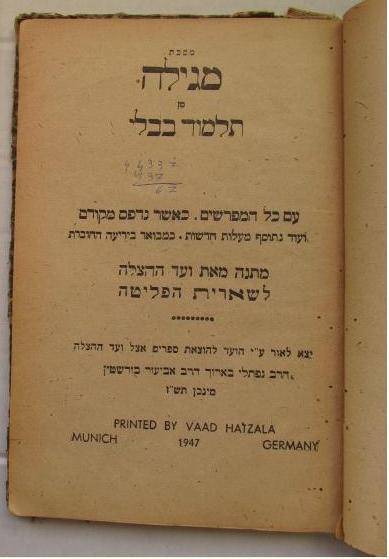
The opening page of the Talmudic Tractate Megilla published by the Vaad HaHatzala (Rescue Organization) in Munich, Germany postwar
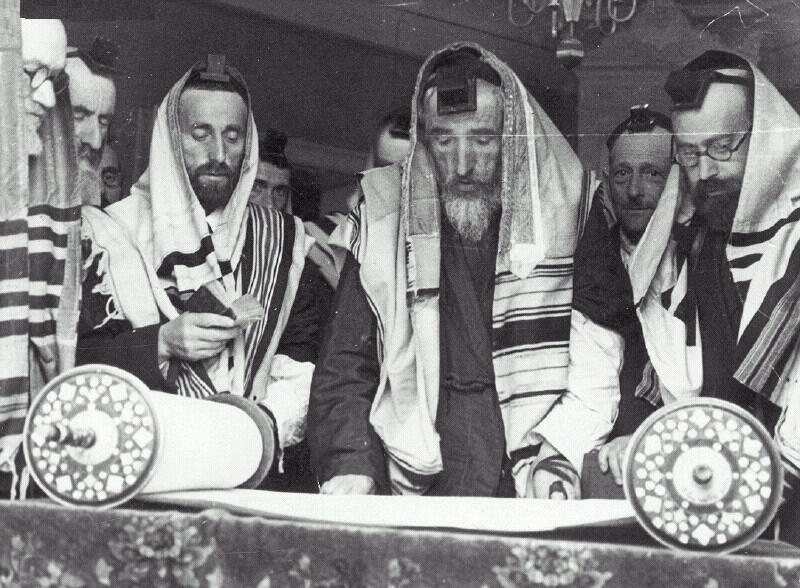
Reading the Torah in the synagogue at Zgierska 21 in the Lodz Ghetto
Yisrael Garber – The Mir Yeshiva in the Troubles of Shanghai (Horodok, Poland)

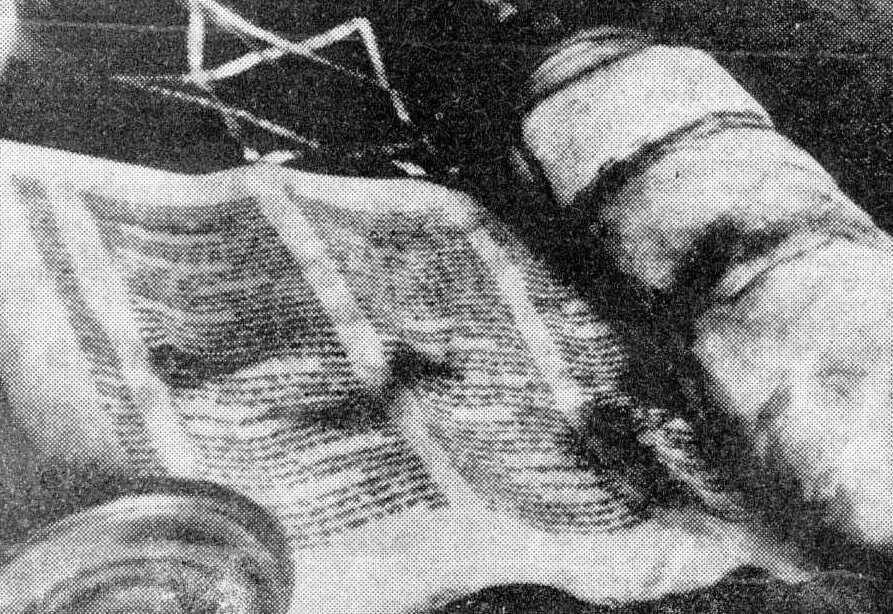
A Torah soaked in Jewish blood
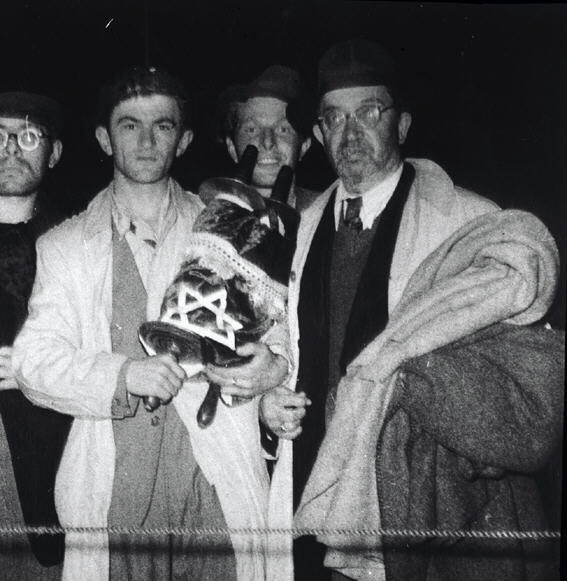
A Torah brought on the HaTikva illegal immigration ship
“Whispering Praise in Each Tongue”
“Whispering Praise in Each Tongue”
Auschwitz, Poland, Shavuot 5704 (1944)
On Shavuot, in the midst of the Holocaust, the Rebbe of Sanz-Klausenberg was in the Auschwitz camp. His main concern was whether, because of the torture, it was possible to pray the evening prayer a day earlier. I will never forget Shavuot in Auschwitz... On the morning of the holiday, rows upon rows of Jews stood in suffering, at the daily roll call organized by the murderers. I was standing not far from the Rebbe of Sanz-Klausenberg, and here the Rebbe was reminding those around him that today was the holiday of the giving of the Torah, and it is good to use the time for the holiday prayer… The Rebbe said the prayers in a weak voice and we followed him, section by section.
We arrived at Akdamut (introductory poem recited before reading the 10 Commandments on Shavuot)… It is difficult to remember the Aramaic words by heart, we added the words from the memories of all the Jews who were present there, and that's how we recited Akdamut. Our emotions… were high, to this day when I remember it I get emotional again, the parts of the prayer that we prayed thanks to the Rebbe, it was still possible to imagine, but that in such a terrible and awful place and situation, we also said the Akdamut, we never dreamed of that at all. It is therefore no wonder that we were moved… What is certain is that if it were not for the Rebbe who encouraged us and comforted us in our difficult times, when our minds were completely disturbed by the troubles and suffering, we would not have been able to pray the Shavuot prayer, and all the more to to say the Akdamut.
The chassidic rabbi, Zalman Na'eh, "The World of Chassidism," Sivan 5742 (1982)
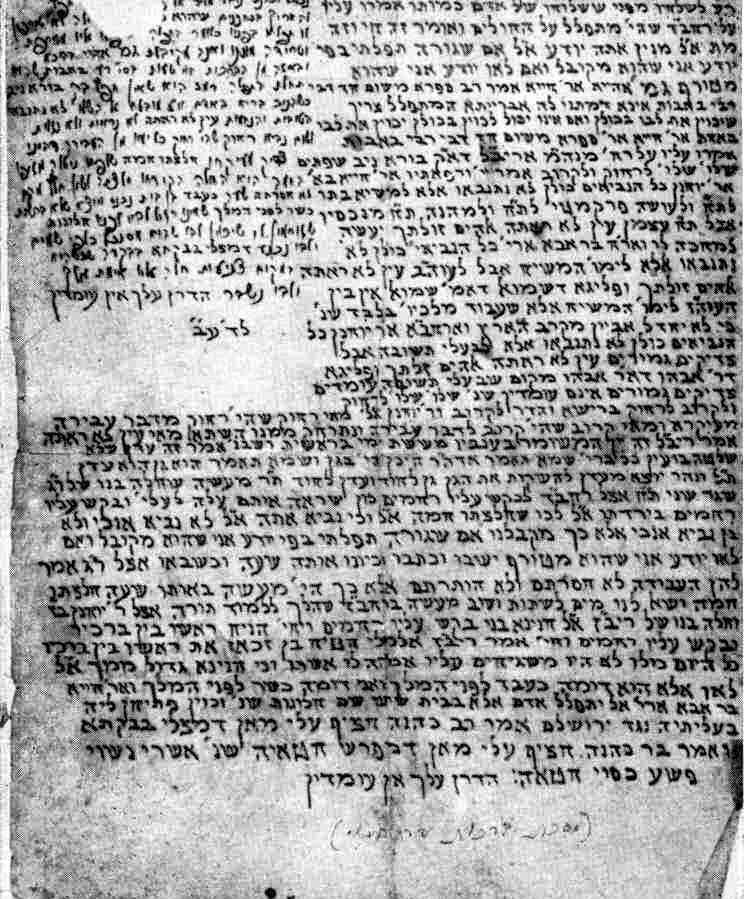
A segment of the Talmudic Tracate Brachot (Blessings) handwritten in pencil by Mendel Kleintzler in the Auschwitz death camp
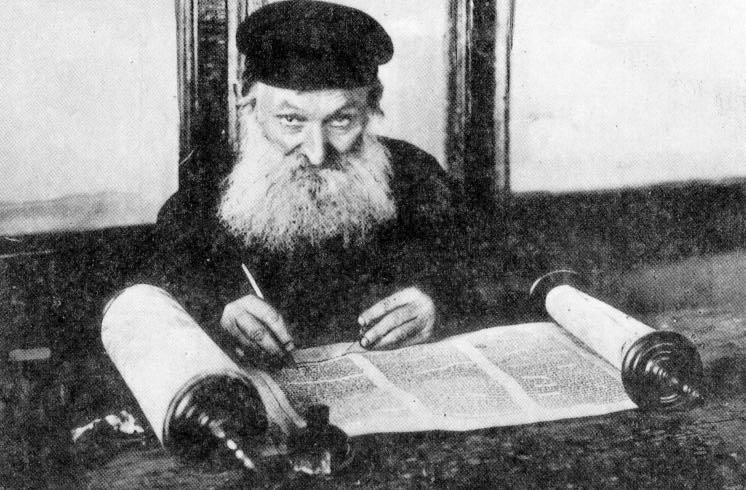
A sofer stam (scribe of Jewish holy texts)
Akdamut (introductory poem recited before reading the 10 Commandments on Shavuot) with Self-Sacrifice in the Lodz Ghetto
Akdamut (introductory poem recited before reading the 10 Commandments on Shavuot) with Self-Sacrifice in the Lodz Ghetto
When we saw Avraham Hirsch in the Lodz ghetto after Passover 1940, we were all stunned, a young man of thirty with a beard and sidecurls, at a time when even old Jews were hardly seen with beards and sidecurls out of fear… Neighbours tried to tell him that one should not take risks at such a time, and that this is not one of the things that they should be killed for instead of transgressing. To this he replied that on Shavuot he would have the yahrzeit (anniversary of death) of his father. He was a prayer leader and already held a tradition to read "Akdamut" in public and he does not how to describe how he would be able to approach the stand to say Kaddish (the prayer for the dead) and read Akdamut without a beard and sidecurls!…
Shavuot arrived. The gates were already locked; night curfew had arrived. They began to gather in the corner of the attic, where Avraham Hirsch had created a small prayer house. We were all surprised at the sight - how beautifully he decorated the place with greenery and branches in honour of Shavuot. He was already standing in front of the stand with a beaming face, his beard and sidecurls combed, and he scolded those who came when he saw the sight of the concern on everyone's faces - "Jews, be happy, today is the day we received the Torah" - he encouraged us all.
At the Shacharit prayer service, when Avraham Hirsch began to read with great enthusiasm in his voice the Akdamut, enthusiasm also rose in our souls… When Avraham Hirsch finished the prayer, he said the Kaddish said by orphans, placed some raisin wine and a cake made of roasted barley on the table, and said: Jews, let's drink "to life", and immediately began to sing "I believe in the coming of the Messiah". At that moment we all forgot for a moment our bitter reality.
After two years we met again and I heard from him once again the Akdamut, but under sad circumstances. And so it was: when those of us left alive in the summer of 1942 after the typhoid epidemic in our camp were sent back to work to the cruel foreman Stellman, who would urge us to work with his thick cane.
During the break, when they gave us the meager portion of watery soup, one person approached and said: "Jews, you have forgotten what today is! Today is Shavuot, the time of the giving of our Torah; gather together and at rest time we will pray and read Akdamut." I looked at the speaker, is it Avraham Hirsch? Shrunken, without a beard and sidecurls, as if his height had also been lowered, shrunken and his head beaten by Stalman's stick, he was a shadow of the cheerful Avraham Hirsch of the past. However, when he pulled out a torn siddur from his pocket and began to pray, I recognized Avraham Hirsch's voice, and especially when he began to recite Akdamut, as if he had grown taller. His eyes began to glow and his face took on the life form of a man. He was Avraham Hirsch, formerly of the Lodz ghetto.
It was a picture I will never forget. On one side the big bulldozers, the train cars with the locomotives that were transporting the soil we loaded onto them… in the middle of a group of young Jewish people, who all looked run over, old, torn, and dirty, and in the middle of them Avraham Hirsch was calling out in closeness in G-d, in such a deep voice, in a whisper, the Akdamut. Everything around stood as if mesmerized, even those who did not understand a word, had never prayed and had never visited a synagogue.
It's like we were floating in the air, ignoring the dire situation we were living in in the present and the price that may be even higher. We stood and listened to the songs of praise to G-d, to the Torah, which came out with great charm from the mouth of Avraham Hirsch. We even forgot the terrible hunger that never left us for even a moment, and the constant worry that the slice of bread would decrease… Soon Stellman woke us up from our dream when he approached us and started raining blows on us with his heavy truncheon: "To work, you slackers!".
After a few months I saw Avraham Hirsch again in a very sad state, he began to shrink and every day he became smaller. Only the siddur did not fall form his hand. How he could hide during all those searches conducted by the Germans on us is also a mystery. And also his belief in a good future. Because the weaker he got, the more he believed that it would be good, it must be good.
(Shimon Cooper, "HaTzofe," Sivan 5, 5728/1968 - From the book Ani Maamin)
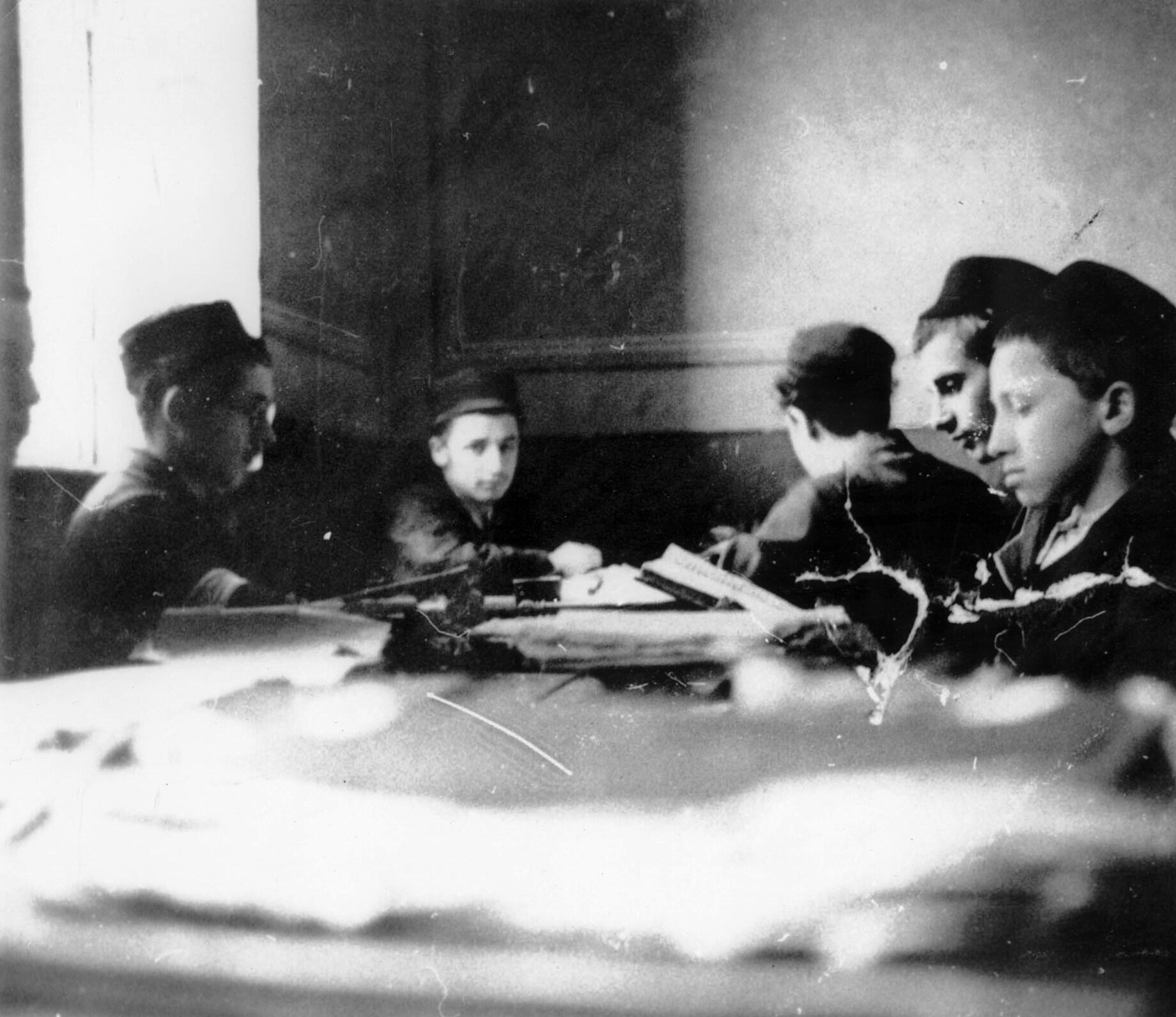
Chassidic boys learning Gemara in the Warsaw Ghetto
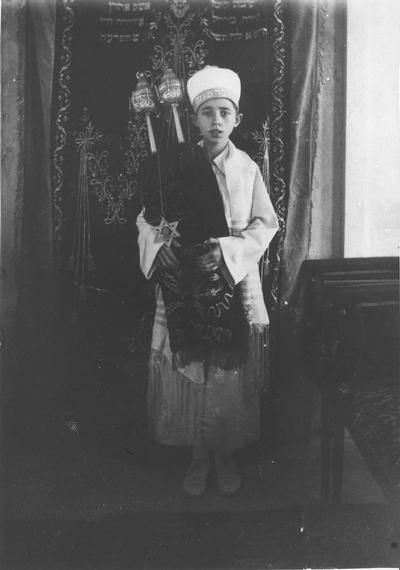
A bar mitzvah boy in Salonika, Greece, wrapped in a prayer shawl and holding a Torah
Honouring the Holiday with Food
Honouring the Holiday with Food
Warsaw, Shavuot 5701 (1941)
I will never forget that Shavuot eve in the year 5701 (1941) in the Warsaw ghetto. I saw my father sad, that he didn't have...a penny. And he suddenly recovered from the kind of depression in his inner room and turned to my mother in an emotional voice: "I'm asking you to make an effort and prepare a gefilte fish in honor of the holiday of receiving our Torah, and if you do so, I promise you that it will bring a blessing to our home…" I looked at my mother and saw that she was barely able to restrain the tears that welled up in her eyes; "Make an effort"? And what good would it do her to "make an effort"?
But my mother went down to the streets of the ghetto, because a kosher woman does her husband's will. And she tried as hard as she could, and put in as much effort as she could, and as a result she brought home a batch of tiny fish, called "steenkes" (it was called that as the fish give off a bad smell)… Mother made a wonderful stew from these fish, and father had a happy and uplifting happy holiday. Indeed, who knows how to estimate the value of Jewish joy? Because a few days after the holiday, a note arrived at our house from the ghetto post office, that a Jew from the city of Scheveningen in occupied Holland had sent two gift packaged in my father's name to the Warsaw ghetto, and the parcels contained real treasures: chocolate, tea, sugar and also used suits, for which you could get a huge fortune in the ghetto.
Rabbi Moshe Prager, "Bais Yaakov," Testimonies of Camp Survivors, pages 183-4
Aharon Fromer - Spiritual Strength in the Lodz Ghetto (Lodz, Poland)

On the Printing of Gemaras, from “Hidden in Thunder,” Not a Thirst for Water, Esther Farbstein
On the Printing of Gemaras, from “Hidden in Thunder,” Not a Thirst for Water, Esther Farbstein
The highlight of the printing plant in the displaced persons camps was the printing of the Talmud. Already in Shavuot of 5706 (1946), a year after the liberation, two tractates were printed - Kiddushin and Nedarim. They were chosen for a fortuitous reason: in the absence of any Gemara, they could not make additional copies, but two individual tractates were found at random in a monastery near St. Otilein (a hospital near Dachau, which was a displaced persons camp).
Rabbi Roz and Rabbi Sneig, the two rabbis from Kovno who stayed at this hospital, initiated a photocopying project, funded by the Vaah HaHatzala (Rescue Committee) of the rabbis in the US, and all those studying in the displaced persons camps - in yeshivas and in study halls, as well as those studying on their own - dealt with these tractates, until more books arrived from overseas. The title page of the first tractates was illustrated by one of the survivors, and perpetuated the atmosphere: the symbol of the Land of Israel - palm trees and fields, towering over the extermination camp surrounded by barbed wire fences, and in the margin of the page it was written: "They almost destroyed me on the land, but I did not forsake Your commandments" (Psalms 119:83).
It was an event of special historical significance. On the soil of cursed Germany, which wanted to exterminate the people and fight against its religion and culture, the American Army printed a Talmud for the Jews. It was also a kind of outlet for the feeling of revenge that was in the hearts of the survivors, especially for the burning of the books - "an American general orders the publication of the Talmud in Occupied Germany, which used to burn these books in the city squares."
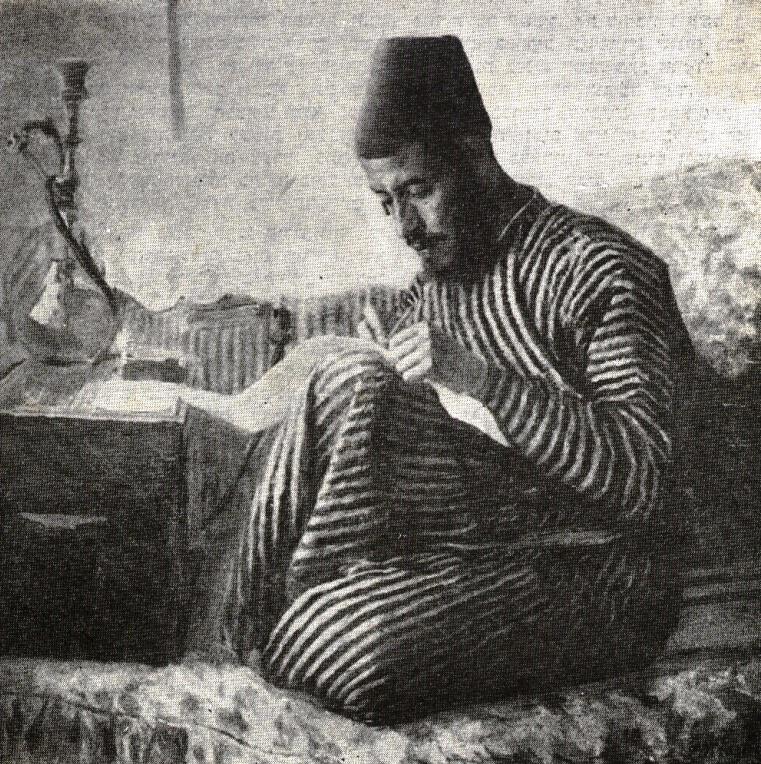
A sofer stam (scribe of Jewish holy texts) writing a Torah in Yemen
Tzvi Yitzchak Govitz – Learning in Every Situation/Rabbi Unger of Nitra (Berehove, Czechoslovakia)

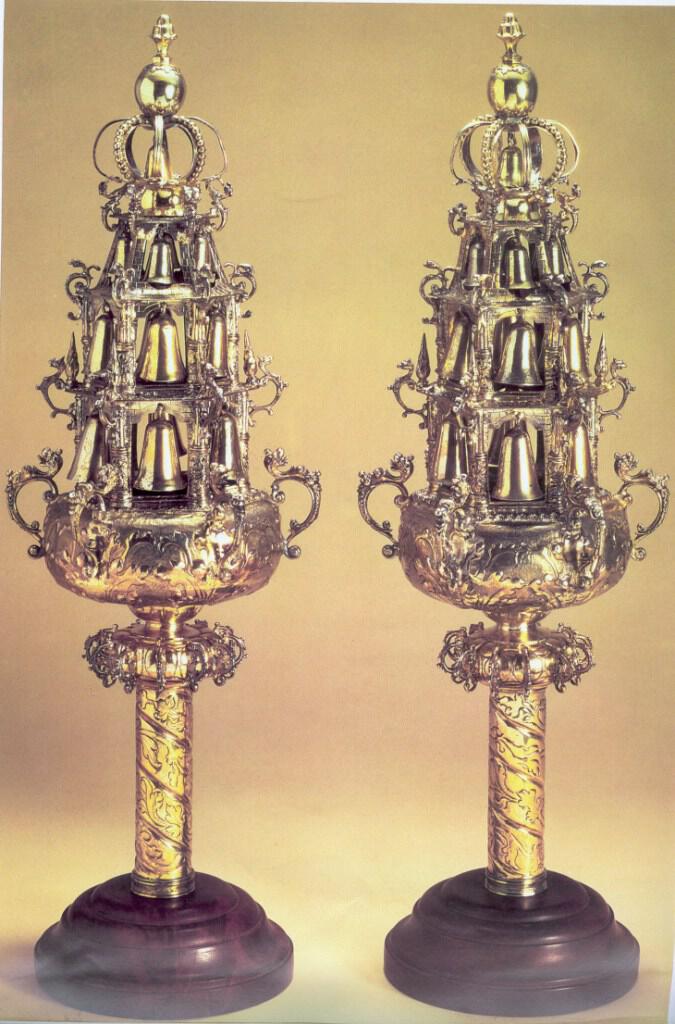
Decorations for the handles of a Torah
Chana Eibeshitz – The Chassidic Underground in the Lodz Ghetto

Avraham Wartheimer - A Page of Gemara in the Forest (Medias, Romania)

Aryeh Yehuda Kurzweill – The Fate of a Torah from Hamburg (Denmark)

Reuven Campagnono – Saving Torahs after the War (Italy)

Hillel Schwartz – Learning Torah in the Death Camps (Hungary)

Shoshana Held – A Chumash (Pentateuch) in Exchange for Bread (Hajdunanas, Hungary)

Chaya Esther Samuel (Cohen) and Shmuel Amos Samuel – Father’s Library – A Testament to Strength and Success in the Shadow of the Holocaust (Oslo, Norway)

Zalman Shteiman - Children of One Nation (Siauliai, Lithuania(
























































































